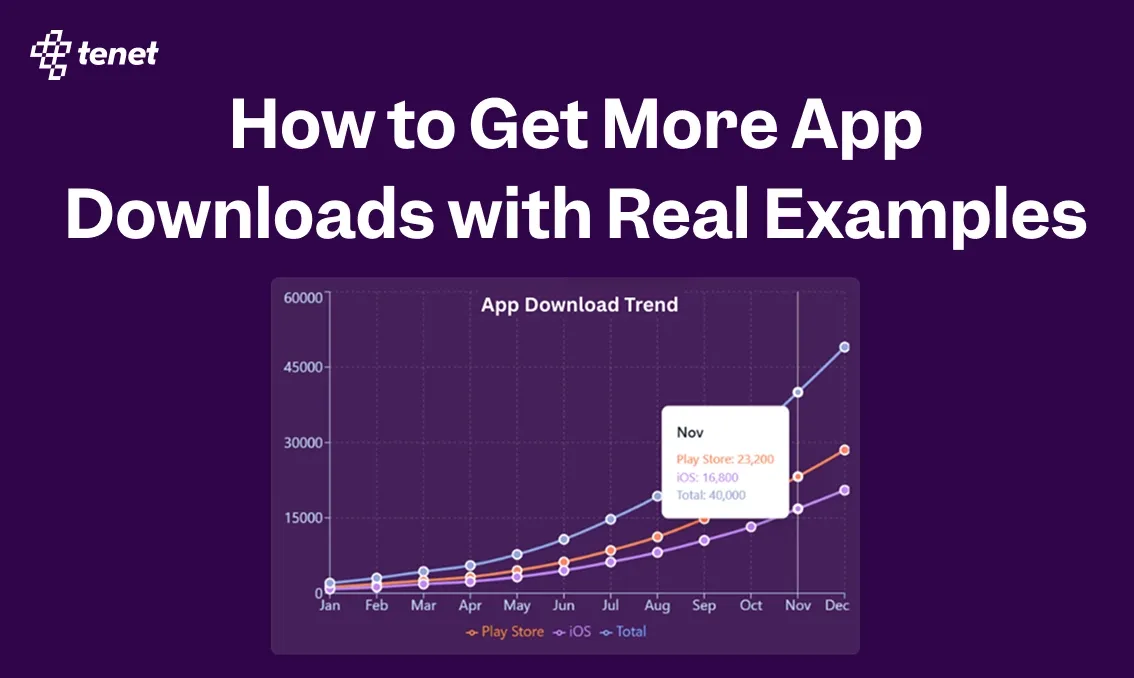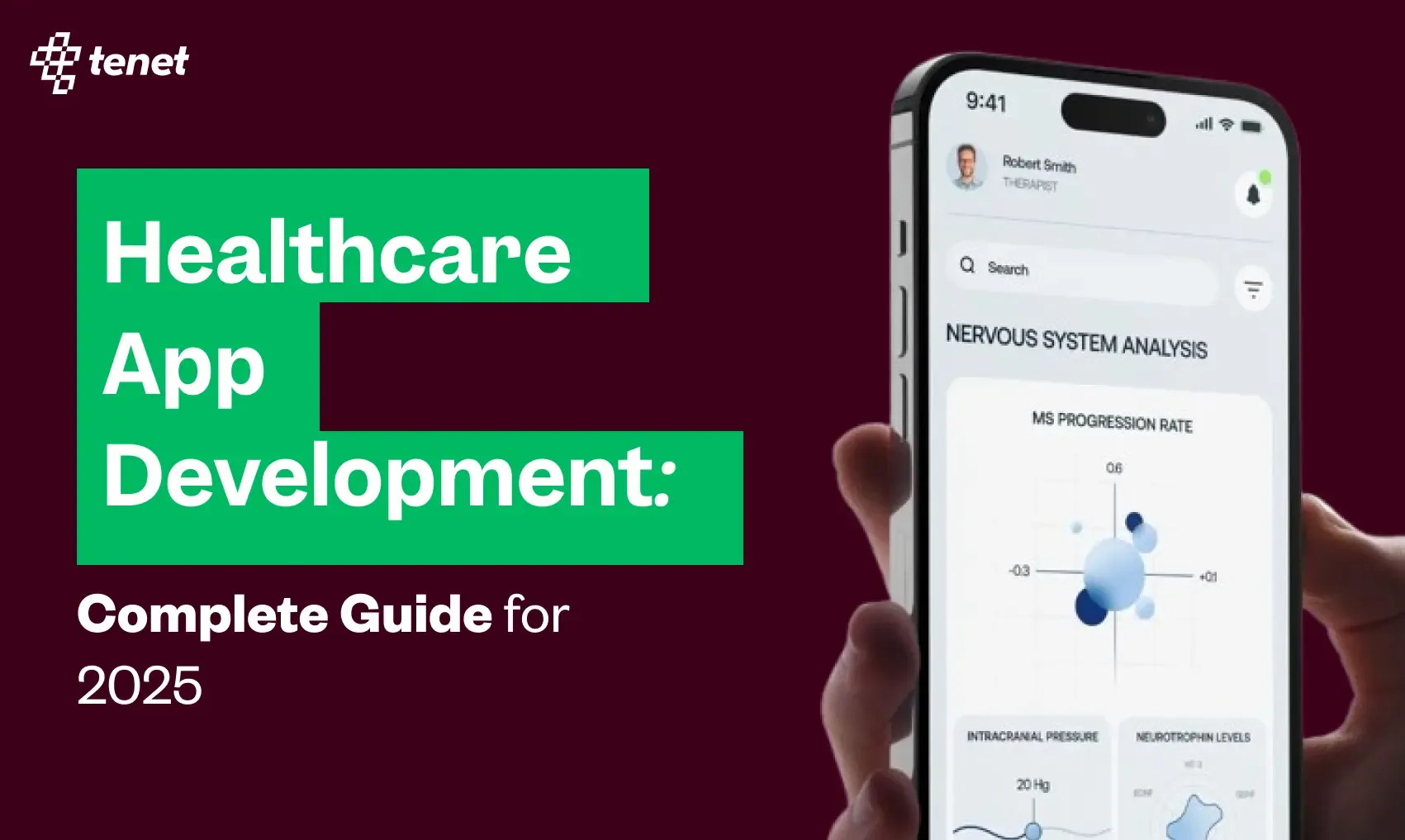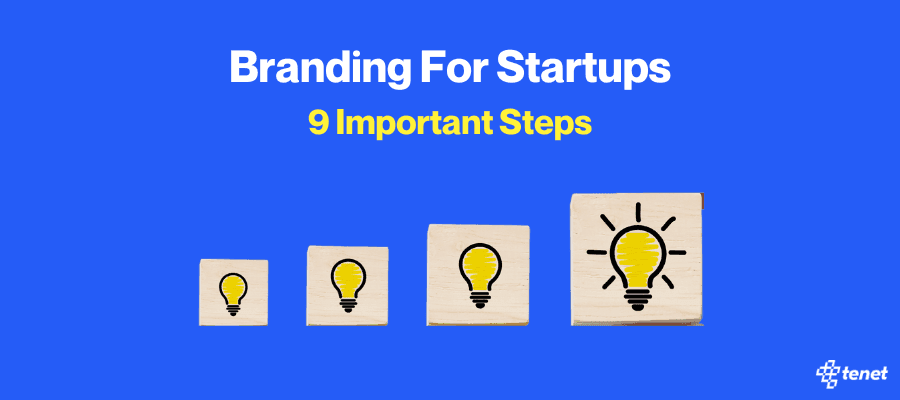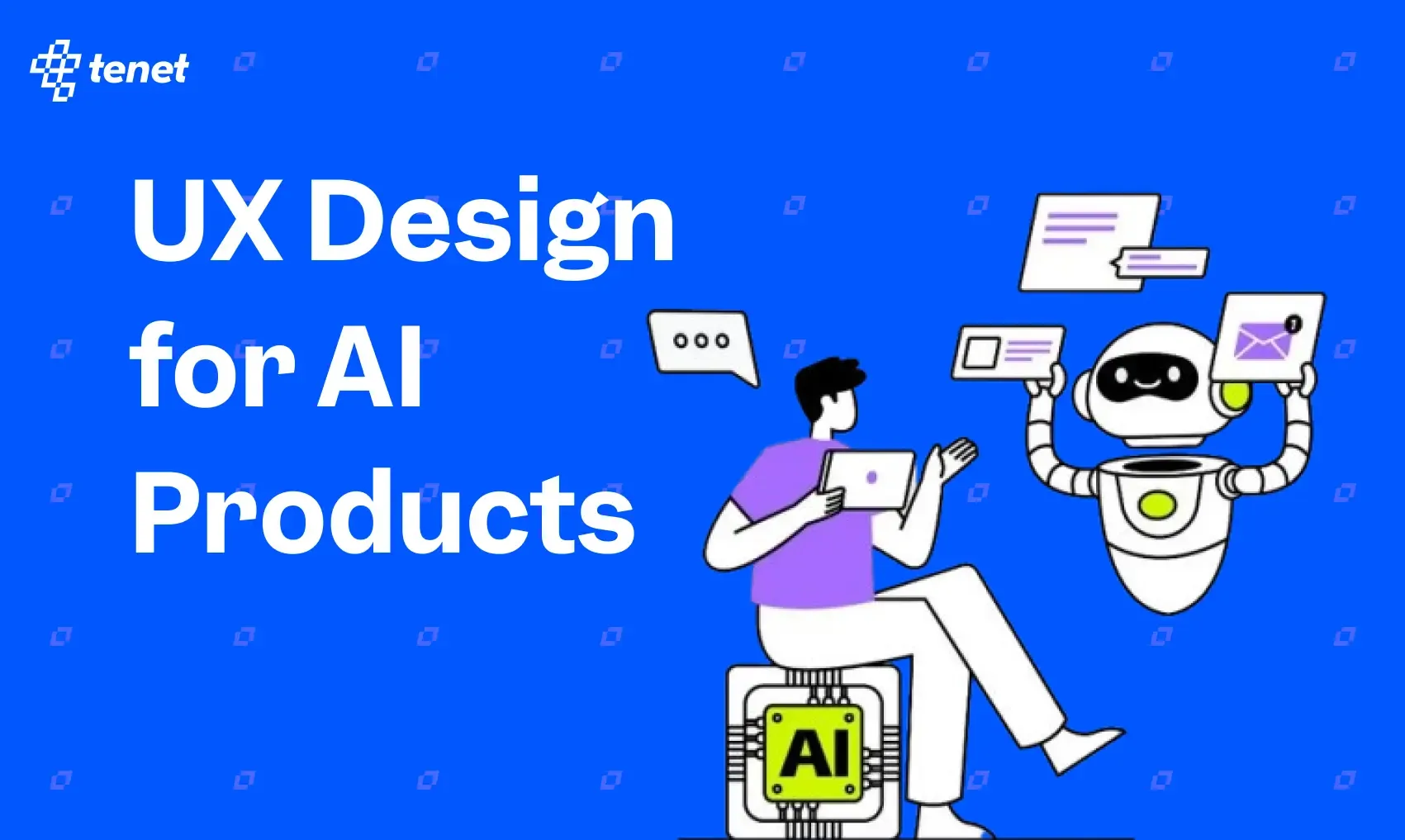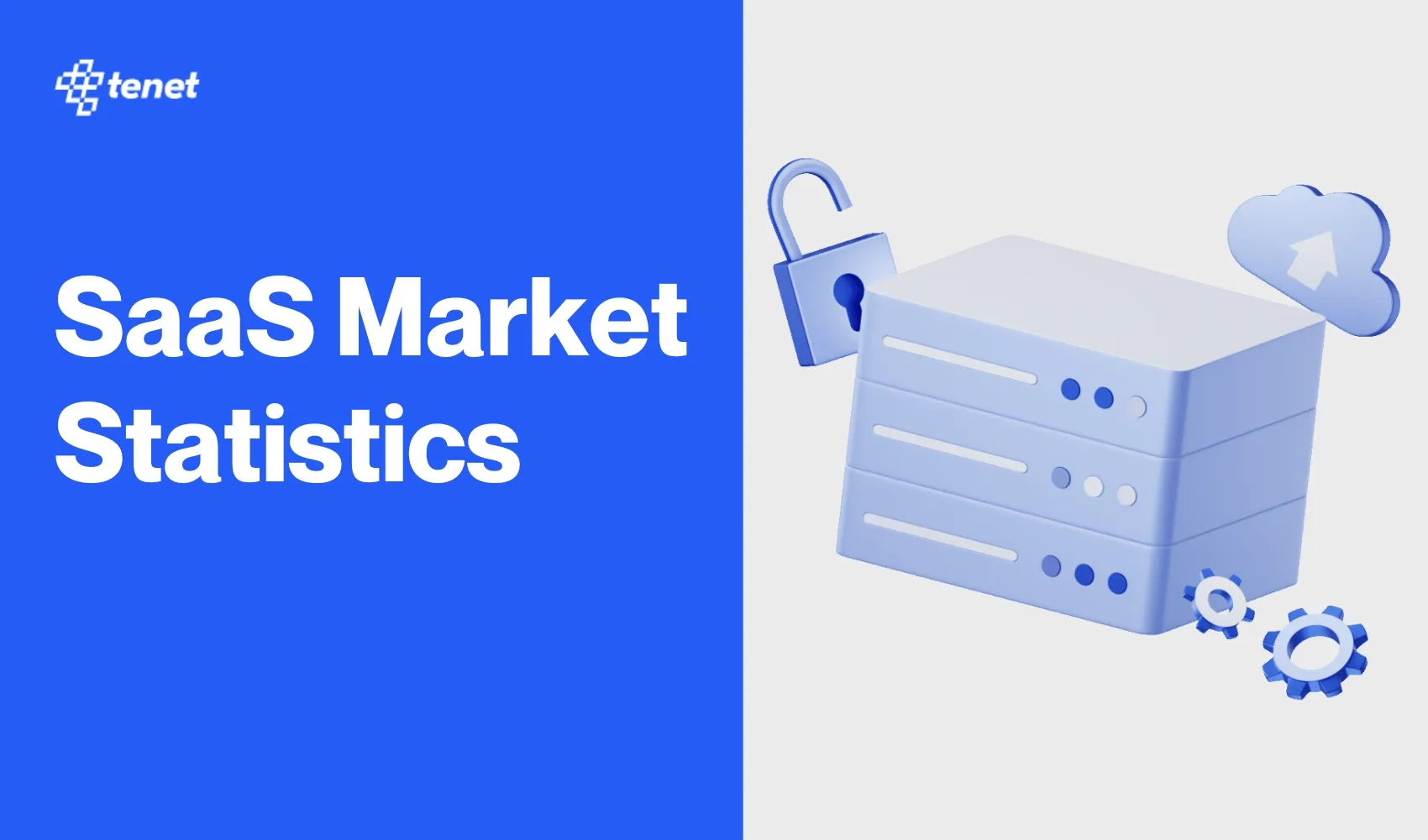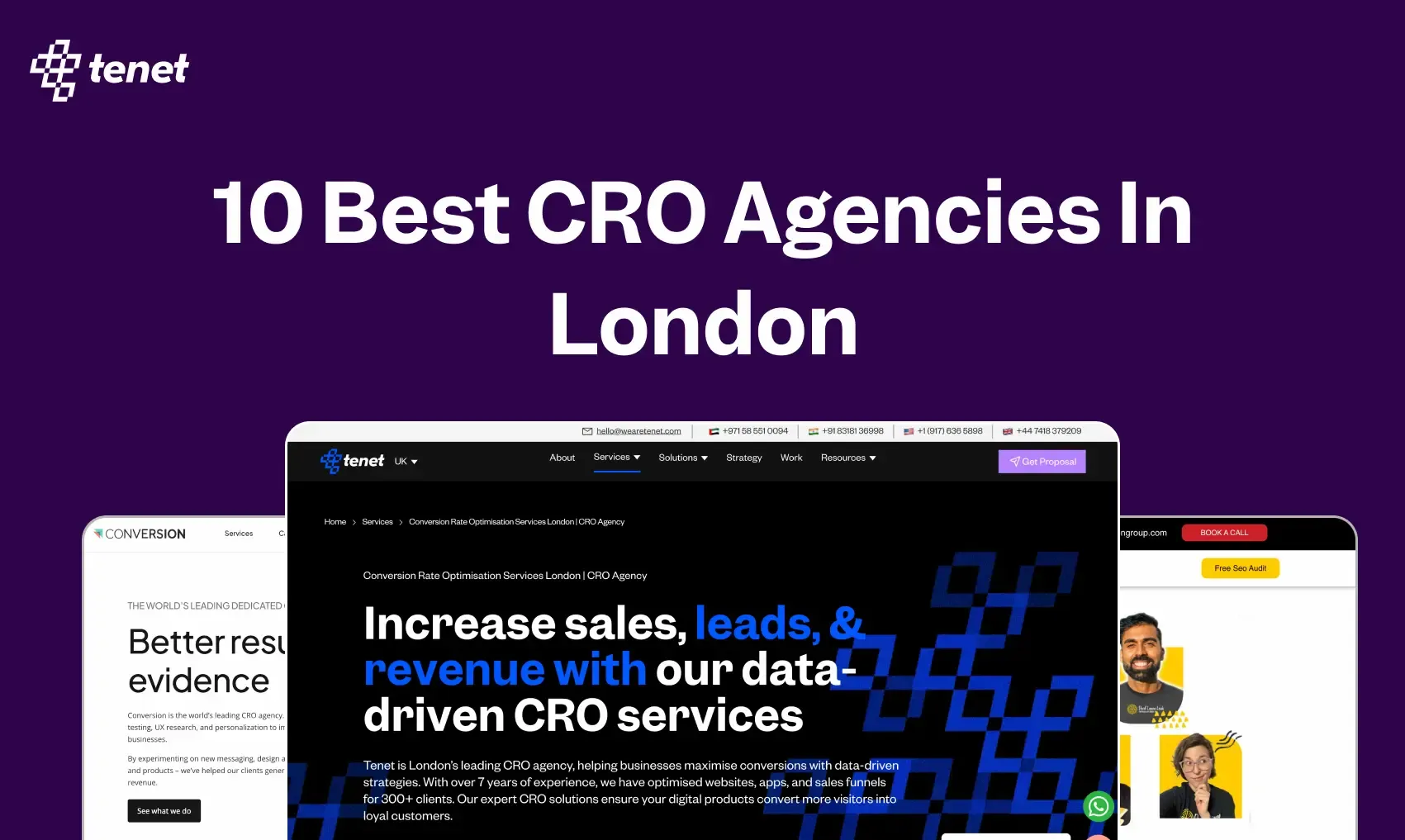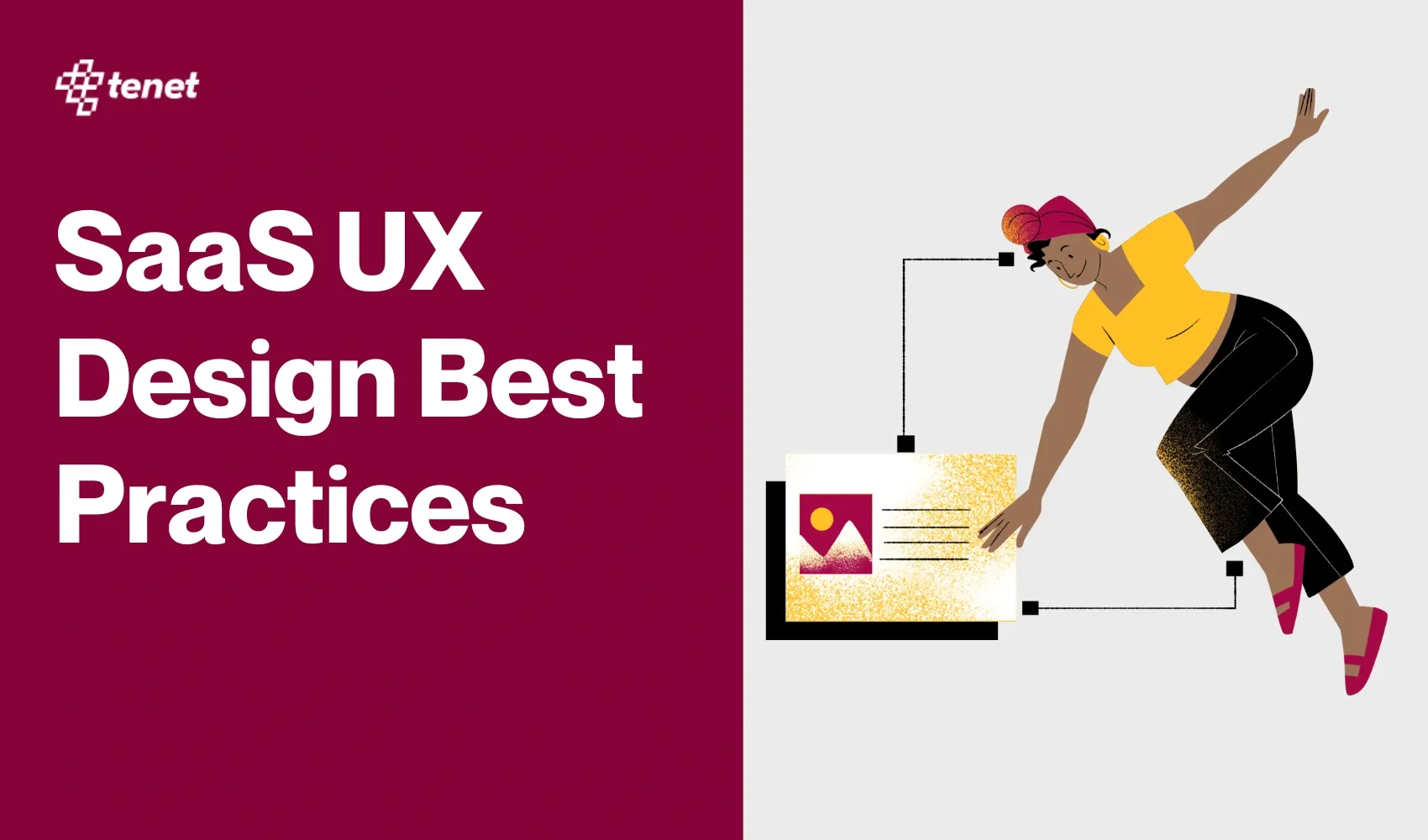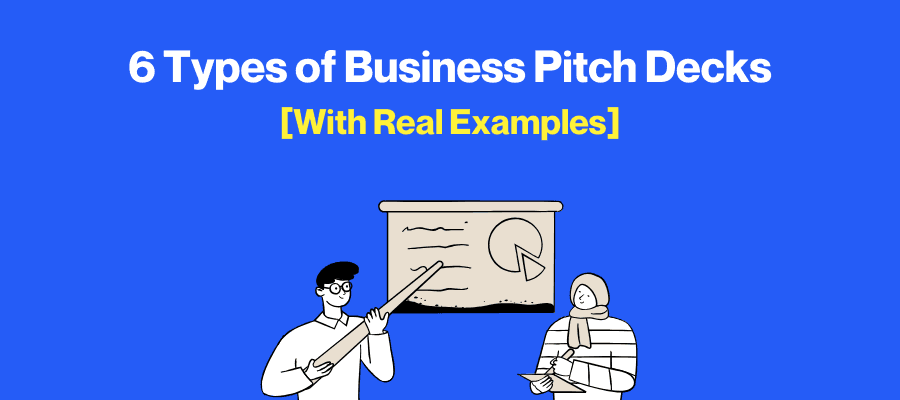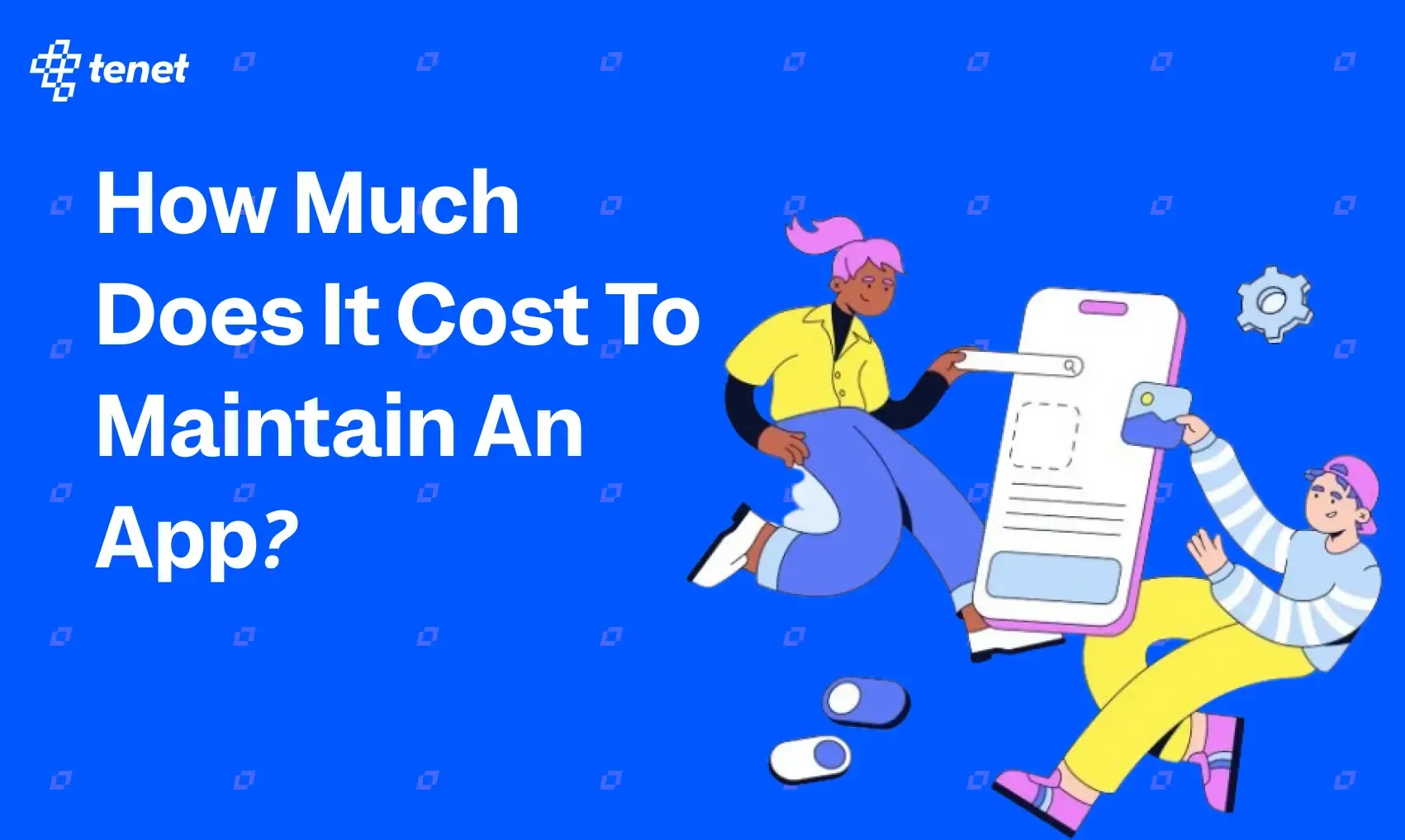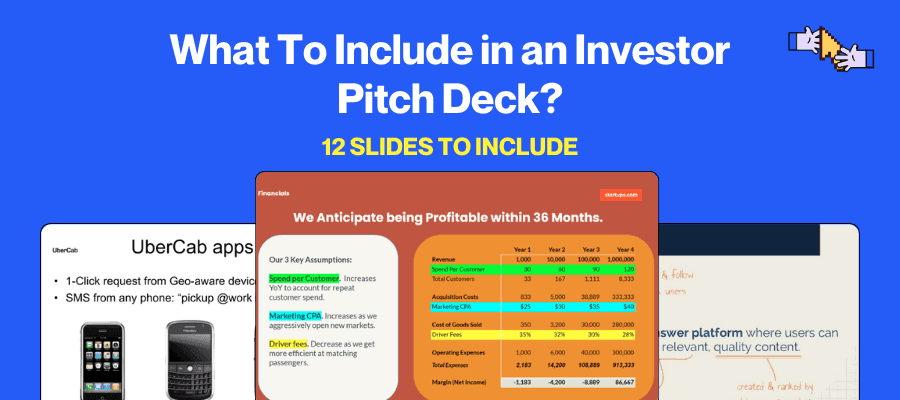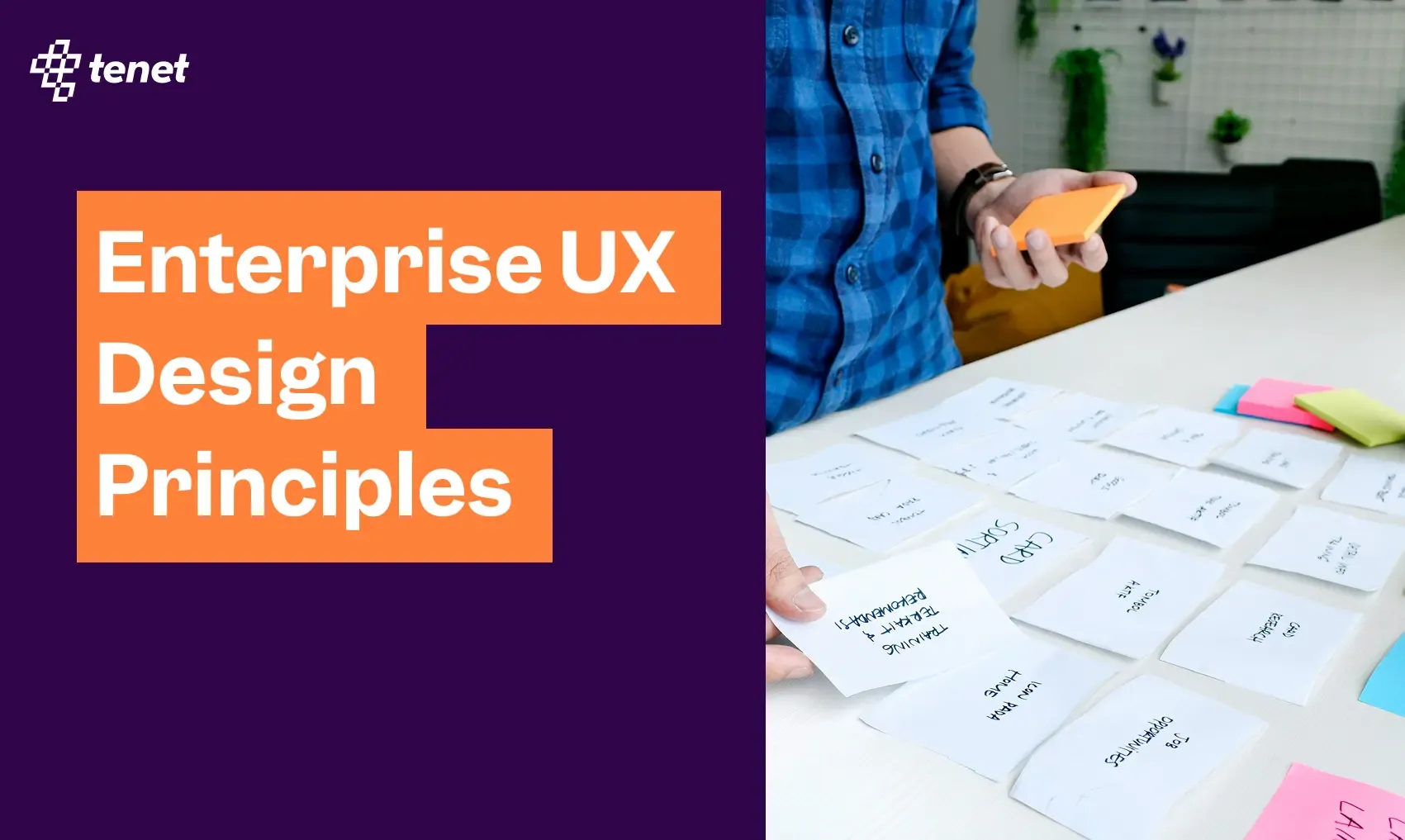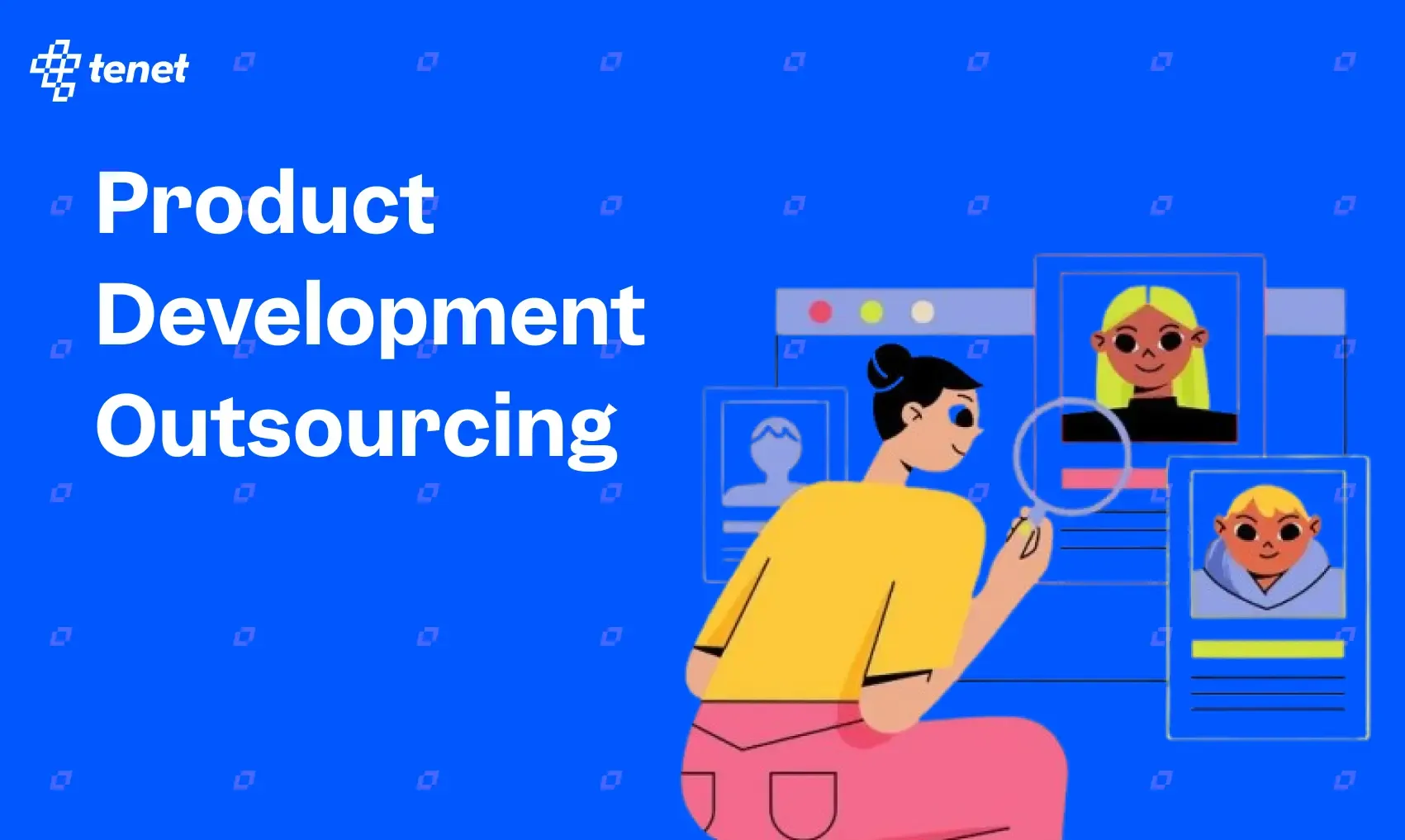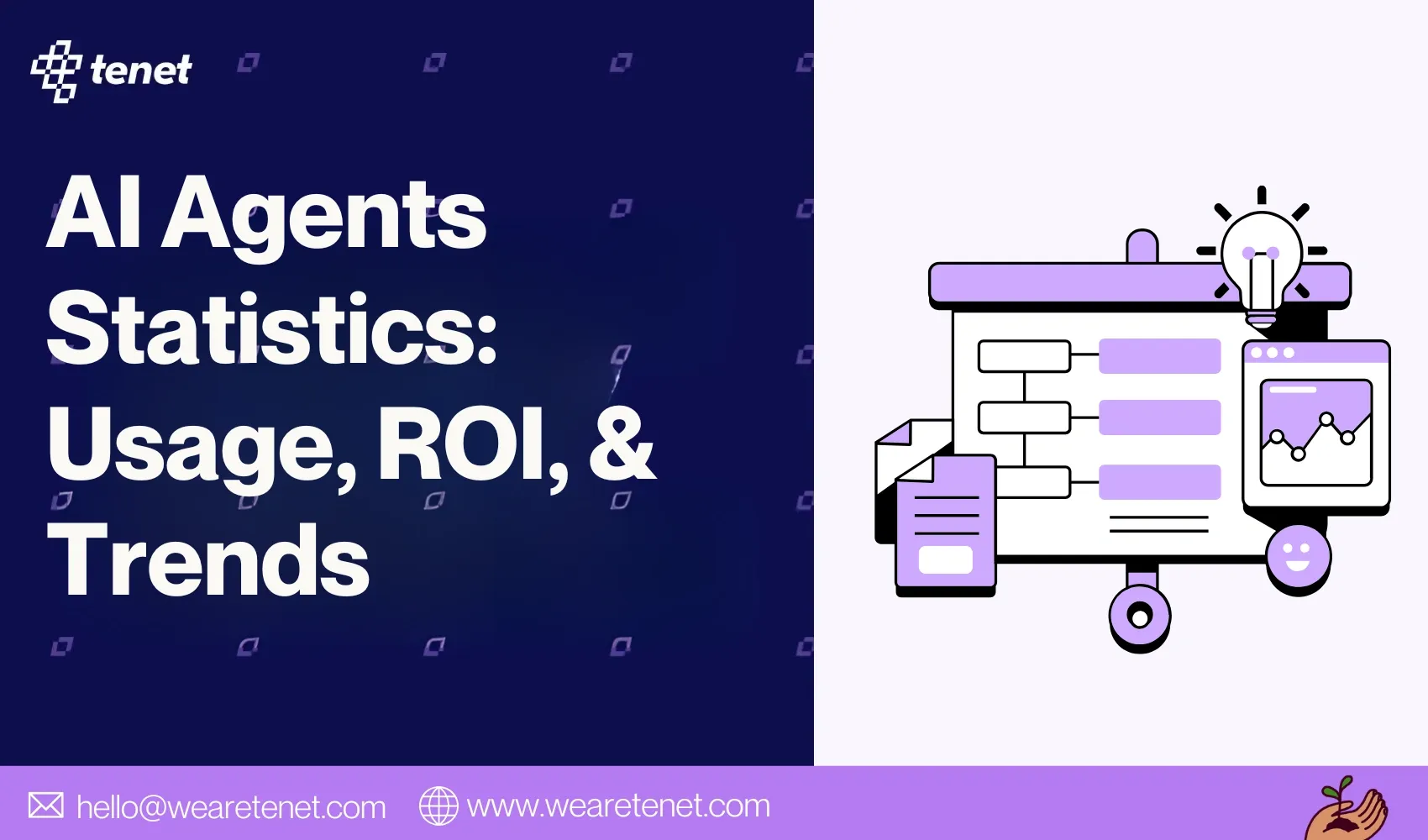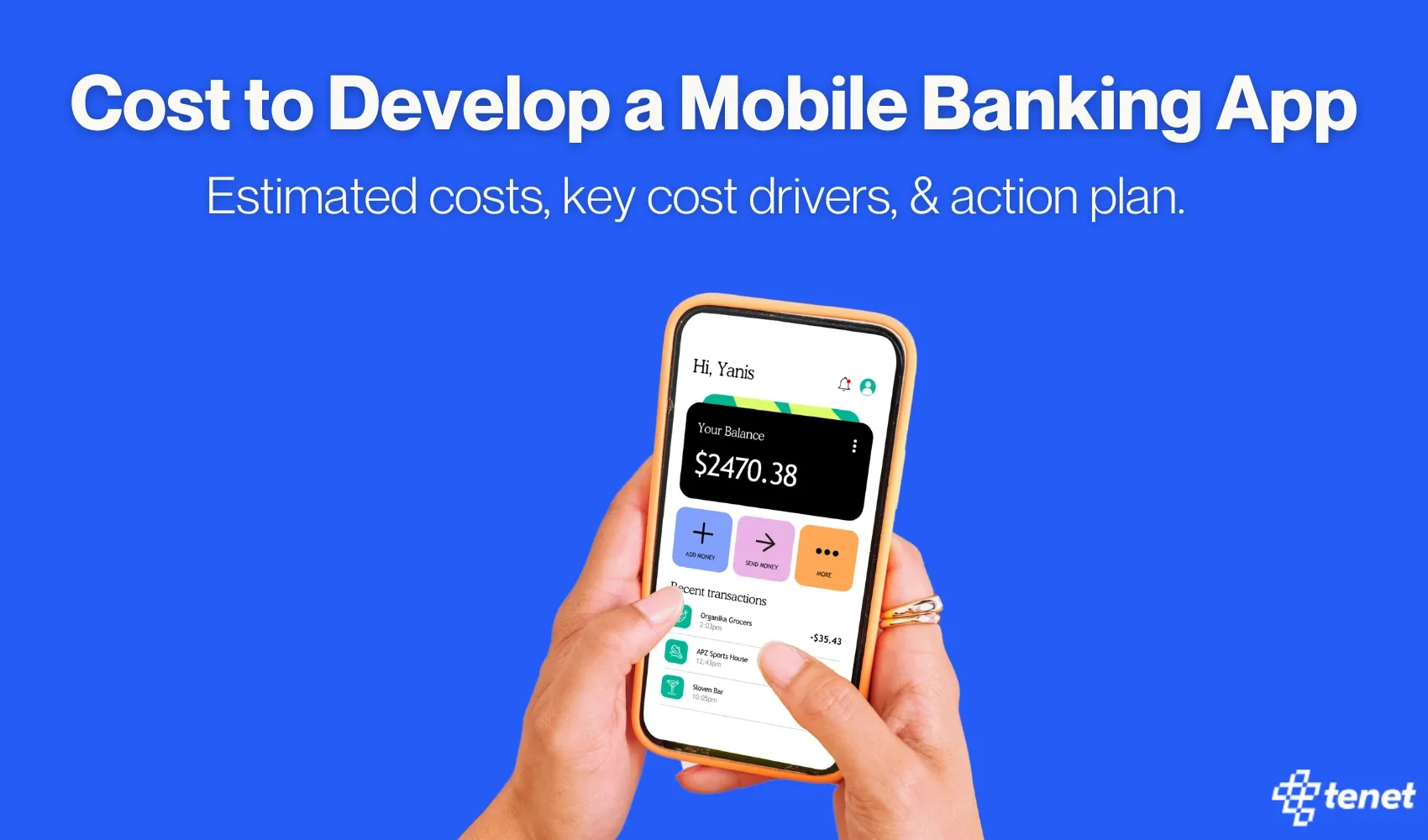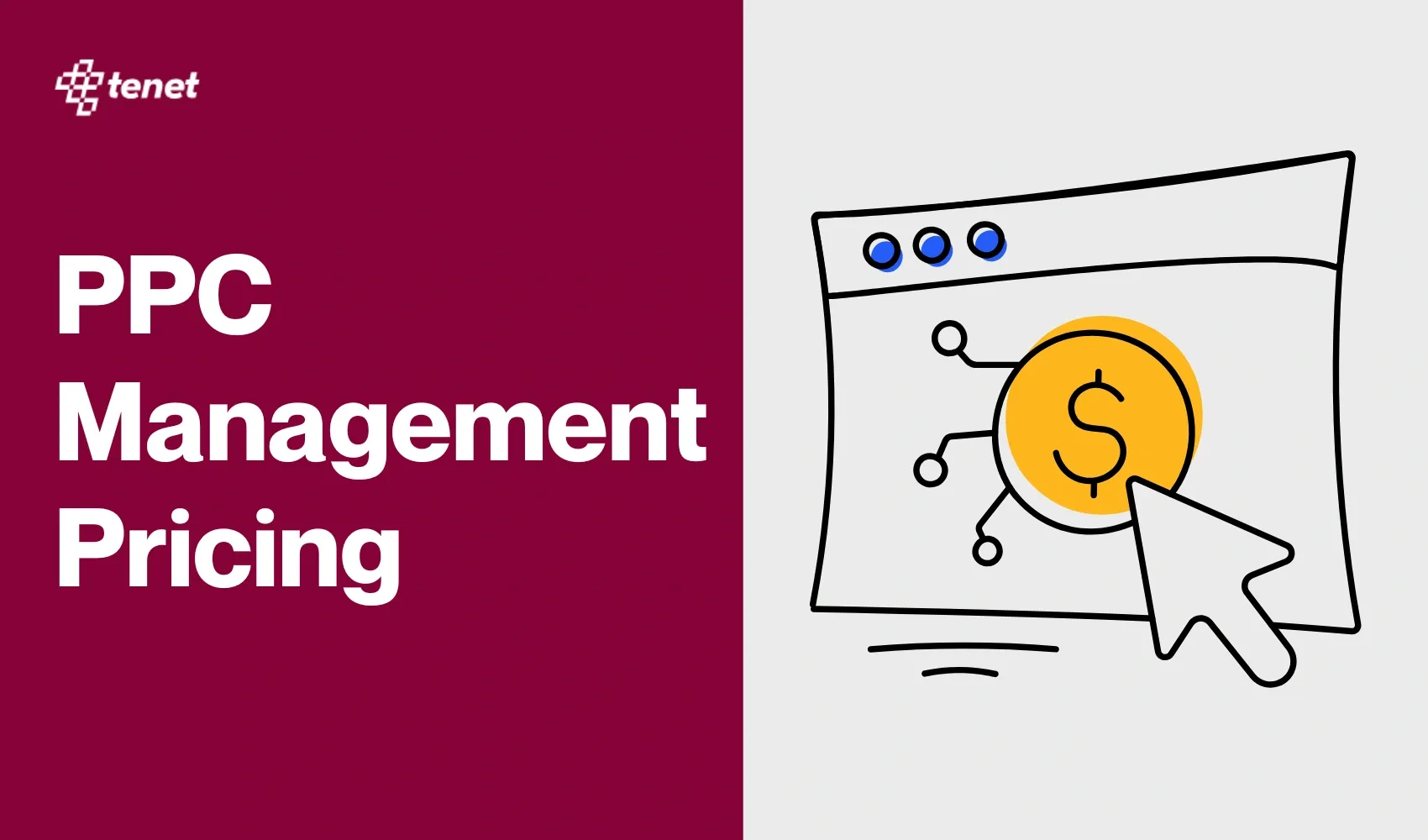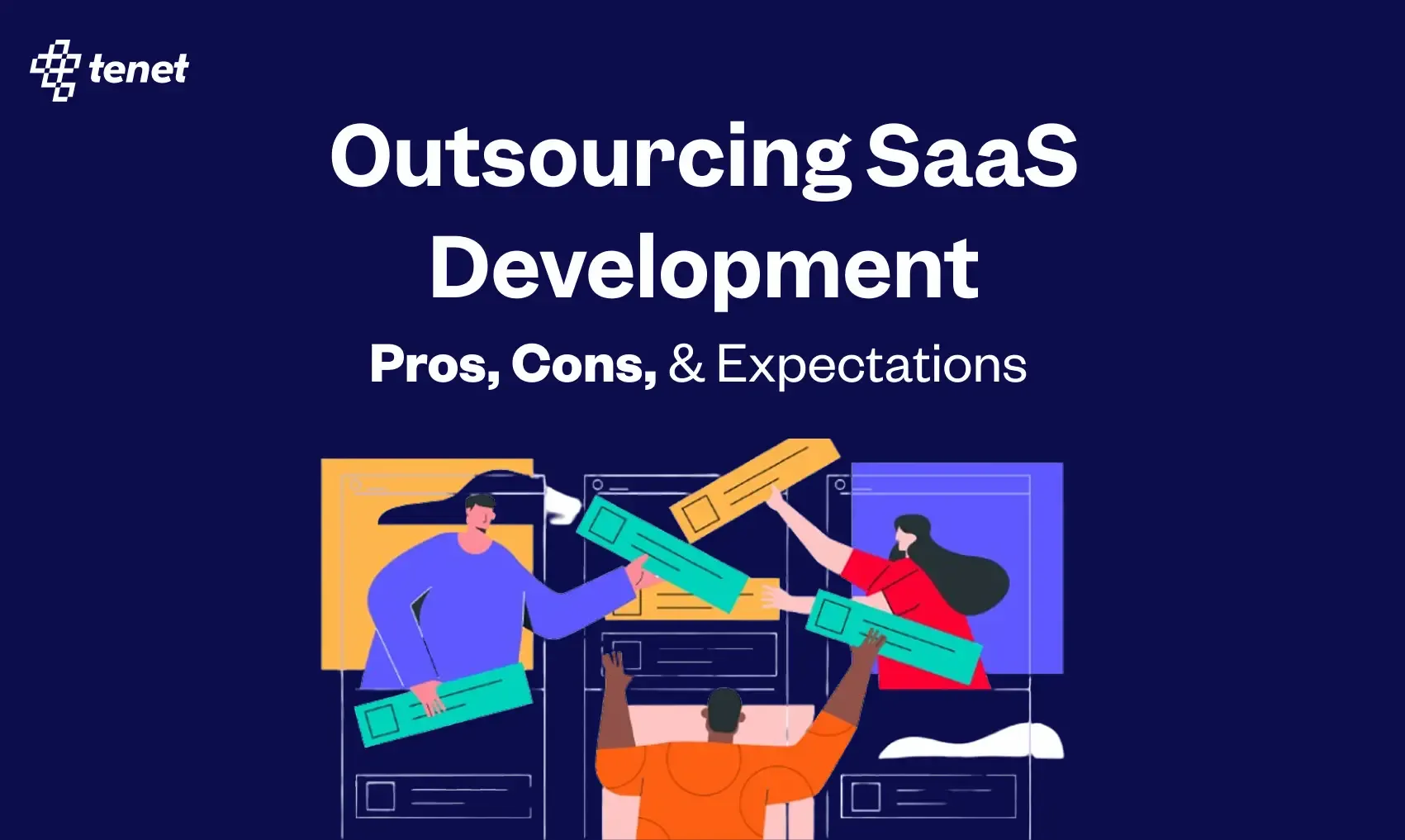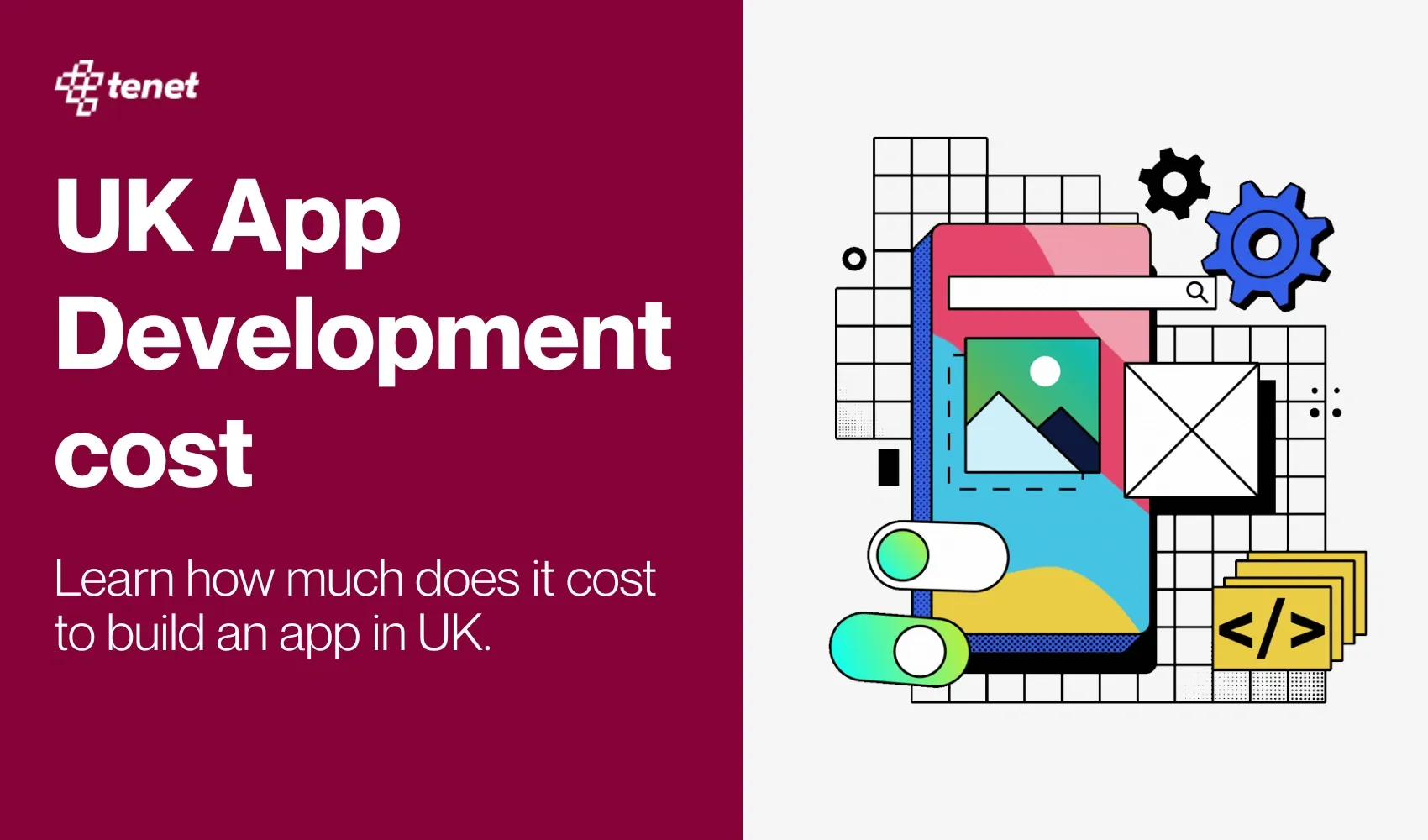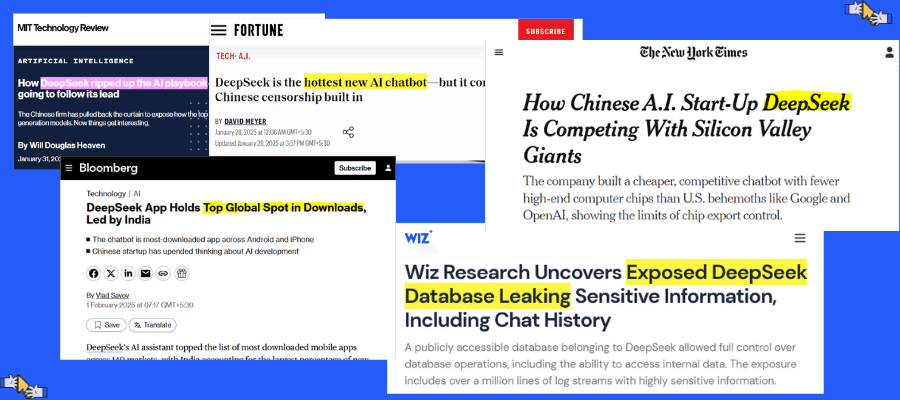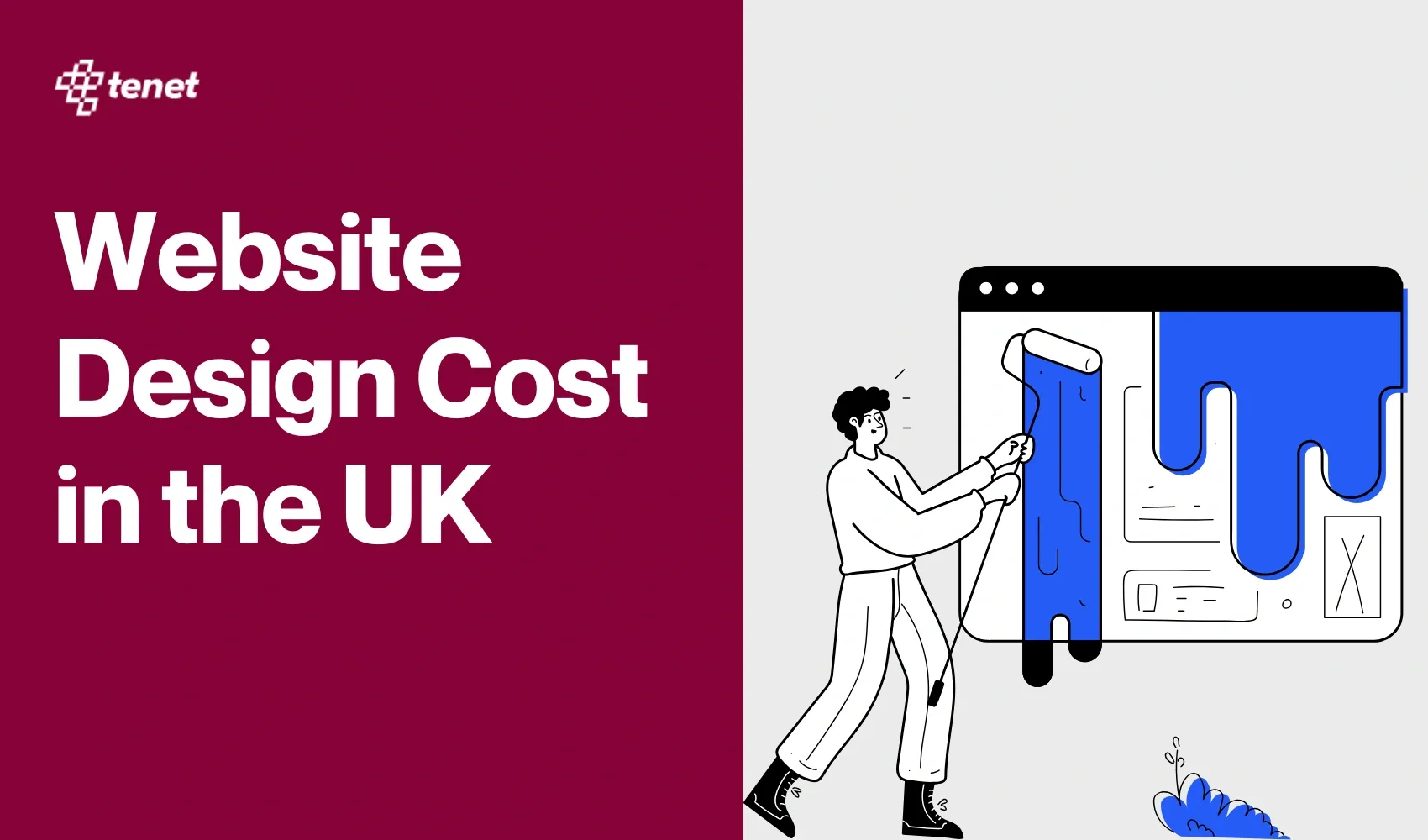60+ AI SEO Statistics You Must Know in 2026
Share
Share
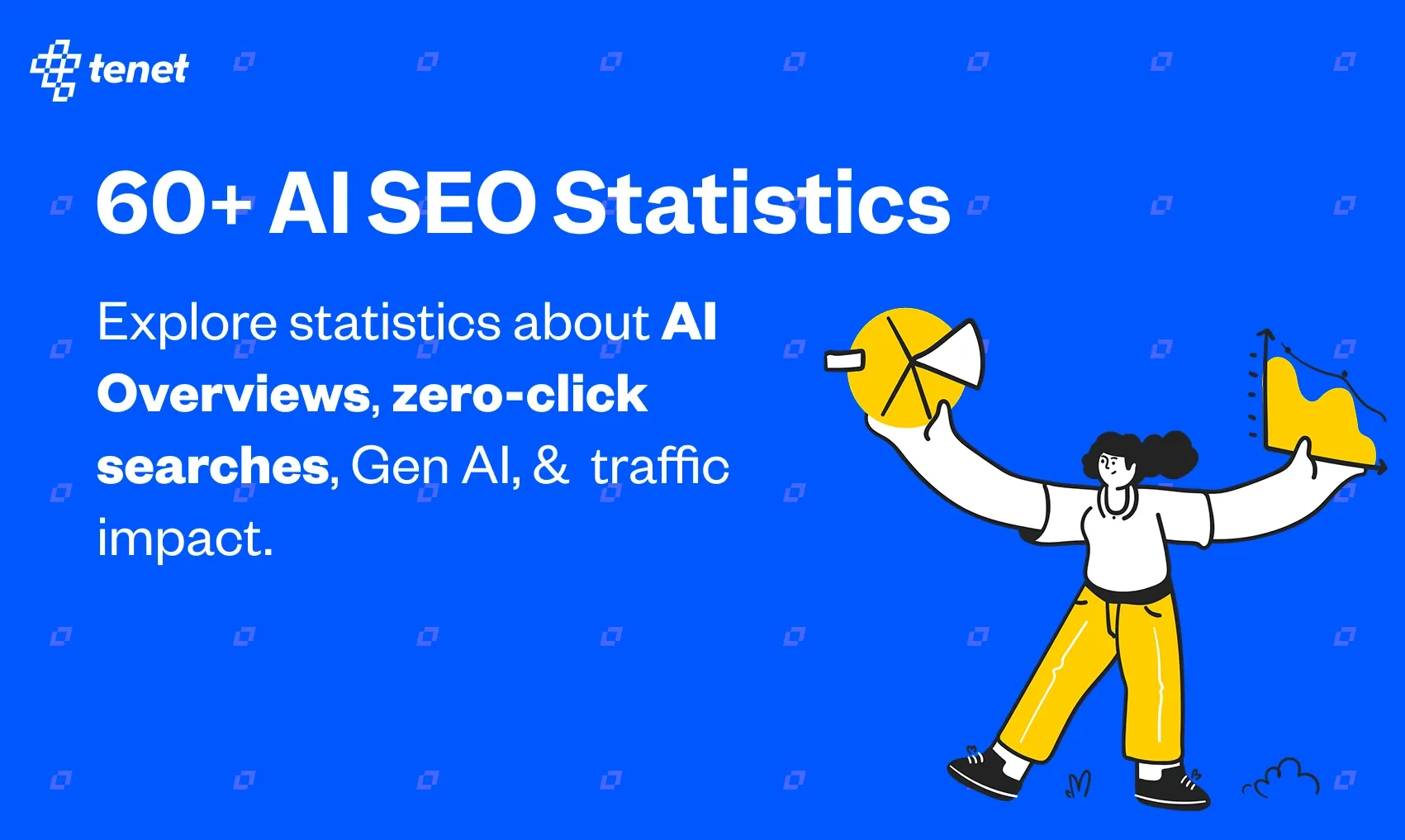
Get a quick blog summary with
Want to stay ahead in SEO? These 60+ AI SEO statistics for 2026 reveal how AI Overviews, zero-click searches, and GenAI tools are reshaping search behavior, content creation, and traffic.
From Google’s AI visibility shifts to ROI trends, this data-packed guide is a must-read for marketers adapting to the AI-first search landscape.
Here are the key AI SEO statistics
- AI Overviews now appear in up to 47% of Google search results, especially for complex or informational queries.
- Click-through rates drop by 34.5% when AI Overviews are present, significantly reducing organic traffic to websites.
- Zero-click searches have surged to 58% in the U.S., as users rely more on AI-generated summaries instead of clicking links.
- 87% of businesses are using AI to create SEO content, with blogs, product descriptions, and service pages as top formats.
- Companies leveraging AI publish 42% more content monthly compared to those without AI tools in their workflow.
- 68% of marketers report improved ROI after adopting AI-powered SEO strategies and tools.
- Wikipedia remains the most-cited source across major AI platforms, including ChatGPT (16.3%) and Perplexity (12.5%).
- 99% of GenAI users still use Google Search, showing that AI tools are enhancing, not replacing, traditional search behavior.
1. How Widespread Are AI Overviews in Google Search?
AI Overviews have rapidly scaled to become a core part of Google’s search experience:
- With over 1.5 billion users seeing AI Overviews each month, these results are no longer experimental.
- In January 2025, AI Overviews appeared in 30% of all search results and 74% of problem-solving queries.
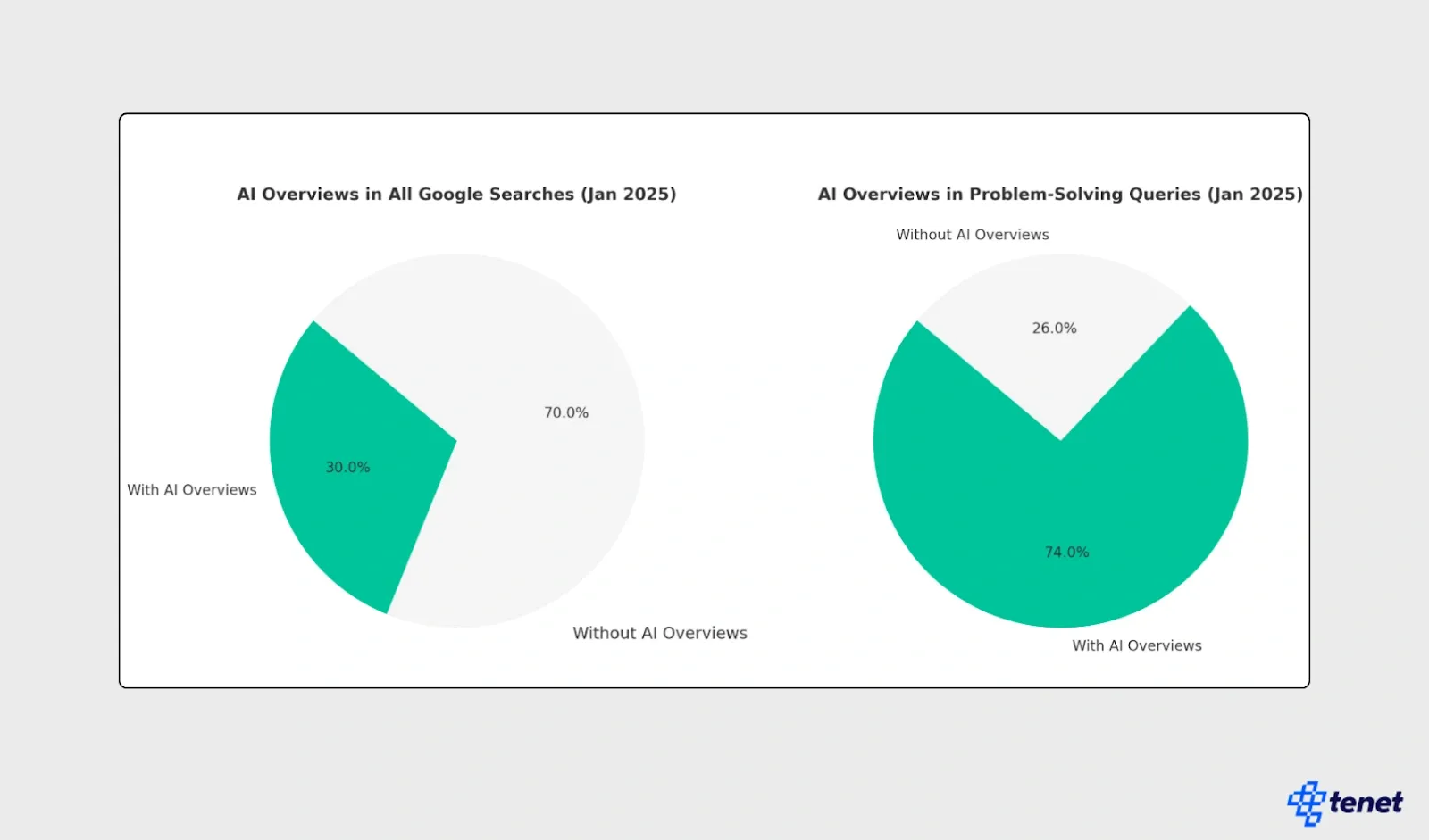
- Since Google’s March Core Update, AI Overviews have grown by 116% in visibility.
- On mobile, AI Overviews and featured snippets take up over 75% of the screen.
- AI Overviews now appear for 12.8% of all searches by volume globally and for 16% of desktop keywords in the U.S.
- Across all Google searches, 9.46% of desktop queries include an AI Overview.
- Google’s AI Overviews now reach more than 1 billion searchers each month.
- AI Overviews are present in up to 47% of all search results, depending on query type and location.
2. What Types of Searches Trigger AI Overviews?
Not all queries trigger AI Overviews; Google's AI is selective:
- AI Overviews show up more often for informational queries, longer search phrases, and searches with higher volume.
- In contrast, they show up less frequently for branded queries, short queries, or searches with a local intent.
- AI Overviews primarily appear for non-monetized searches, meaning ones without clear commercial or transactional intent.
- Long-tail and complex questions are much more likely to generate AI Overviews than generic keywords.
3. How AI Overviews Are Changing Click Behavior
AI Overviews are shifting how users interact with search results:
- When AI Overviews appear, clicks on traditional search links drop by 34.5%.
- Around 43% of AI Overviews cite another Google property as the source, keeping users within the ecosystem.
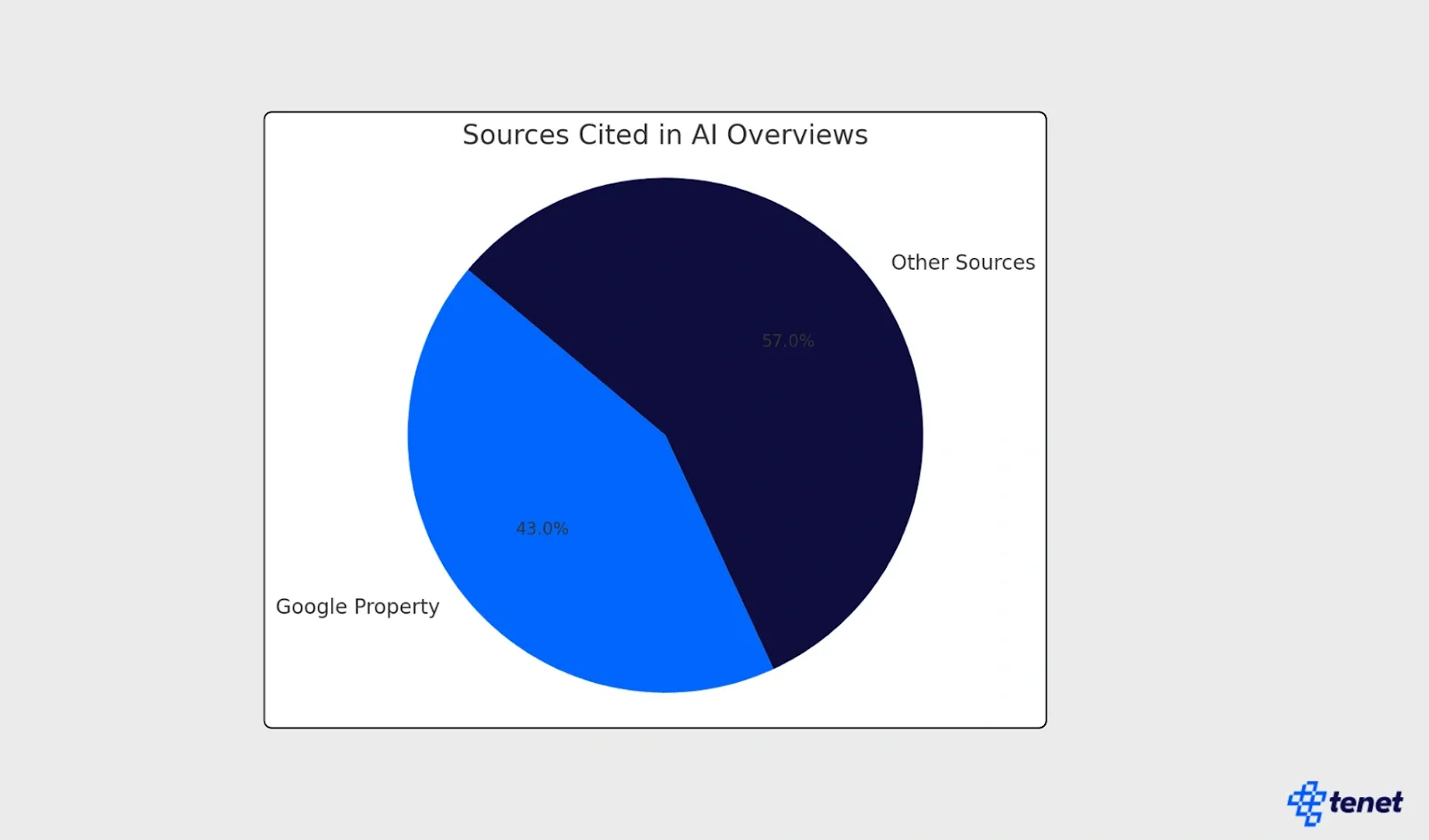
- According to Growth Memo, 70% of users don’t scroll past the first third of an AI Overview.
- Zero-click searches are on the rise: over 58% of all U.S. searches don’t result in a single link click.
- Reddit threads, YouTube demos, and forums now absorb roughly one-third of the traffic AI Overviews leave behind.
- As AI content becomes the "answer," users increasingly rely on summarized overviews rather than clicking through.
4. How GenAI Tools Are Shaping Search Behavior
Searchers are diversifying across traditional engines and generative AI platforms:
- 99% of GenAI users still use traditional search engines, AI isn’t replacing search, just supplementing it.
- As of 2024, Google handled 373x more searches than ChatGPT.
- A SparkToro/Datos study showed Google has 290x more users than Perplexity.
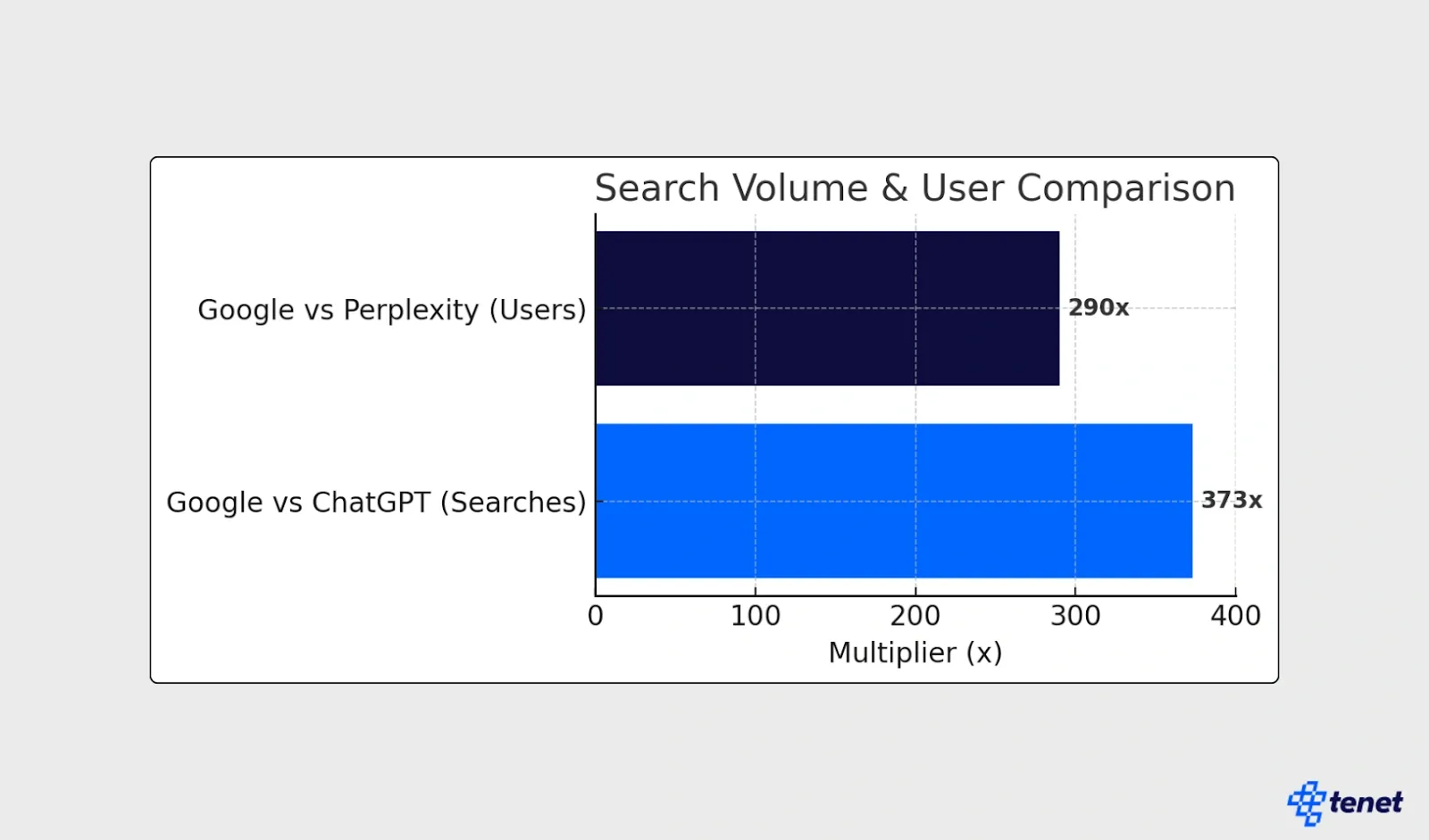
- ChatGPT continues to grow fastest, followed by Gemini, Copilot, Claude, and Perplexity.
- From May 2023 to May 2024, ChatGPT’s monthly active users grew 25% across desktop and mobile.
- On average, Google users generate 200 search events/month, while Perplexity users average 15, and ChatGPT users just 12.2.
- About 16.4% of search users also use GenAI platforms, but not as full replacements.
5. Is AI a Serious Traffic Source Yet?
AI’s traffic contribution is still small compared to Google, but growing:
- AI sends just 0.1% of total referral traffic, a fraction compared to traditional sources.
- Google delivers 345x more traffic than the top 3 AI tools combined.
- AIs now send almost the same amount of referral traffic as Reddit.
- Perplexity recently overtook Gemini in terms of traffic sent to third-party sites.
- The average ChatGPT user clicks 1.4 external links per visit, compared to 0.6 for Google users.
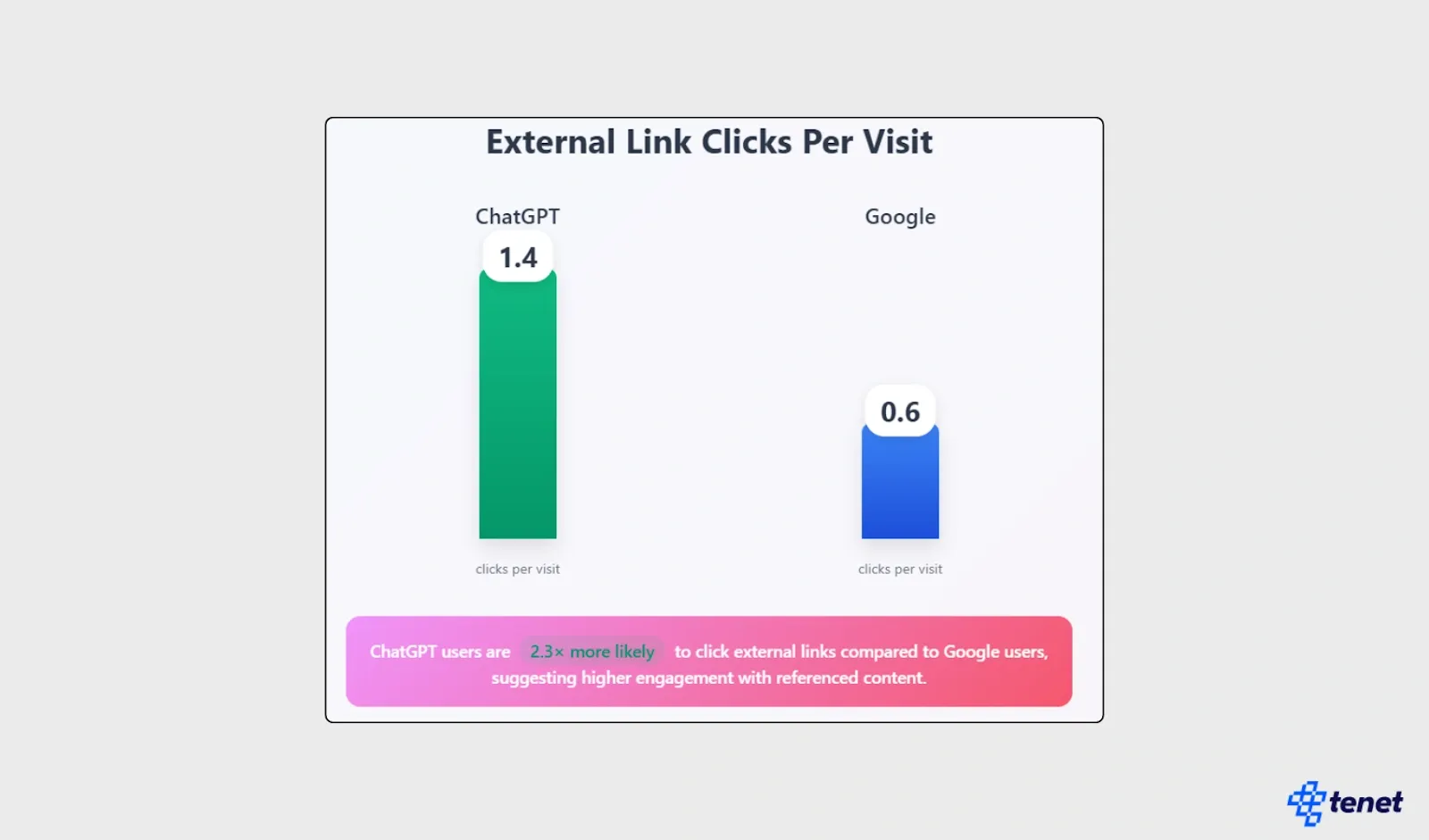
- AI sends more traffic to U.S.-based business websites than to those in India or the UK.
- For small sites (<10K visits), AI contributes 0.3% of traffic. For large sites (>1M visits), just 0.1%.
- Best-of content, product pages, and educational guides are the top types receiving AI-driven traffic.
6. What Makes a Brand Show Up in AI Overviews?
AI Overview visibility depends more on brand signals than traditional SEO metrics:
- Off-site brand mentions show the strongest correlation with AI Overview appearances, more than backlinks or domain authority.
- The top 50 domains receive 28.9% of all brand mentions used in AI Overviews.
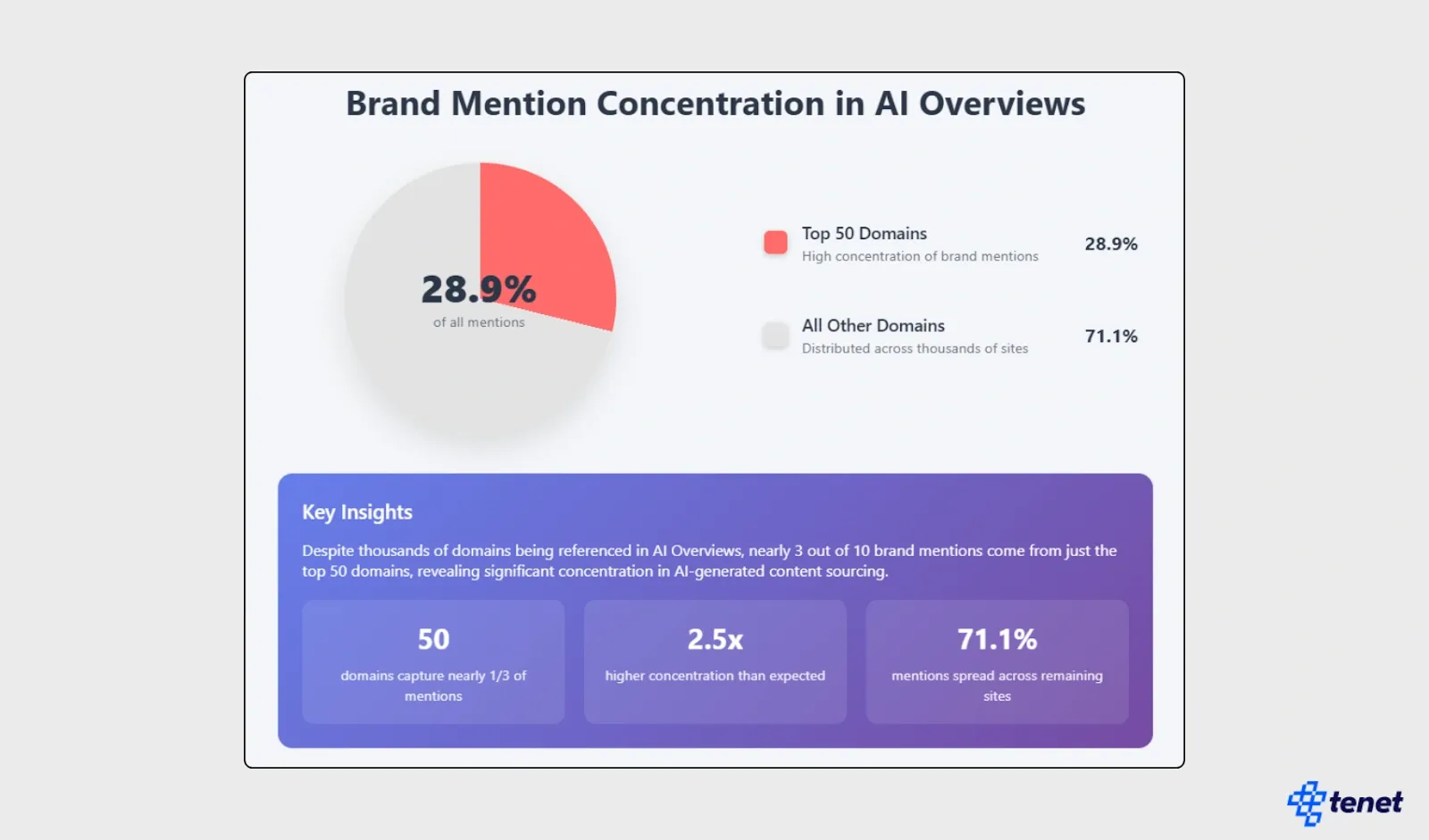
- Brands that dominate these mentions receive up to 10x more visibility in AI Overviews than the next quartile.
- Only 14% of the top 50 sources are shared across ChatGPT, Perplexity, and Google AI. Each tool has a unique citation pattern.
- 26% of brands have zero mentions in AI Overviews, indicating a long-tail opportunity for underdog brands.
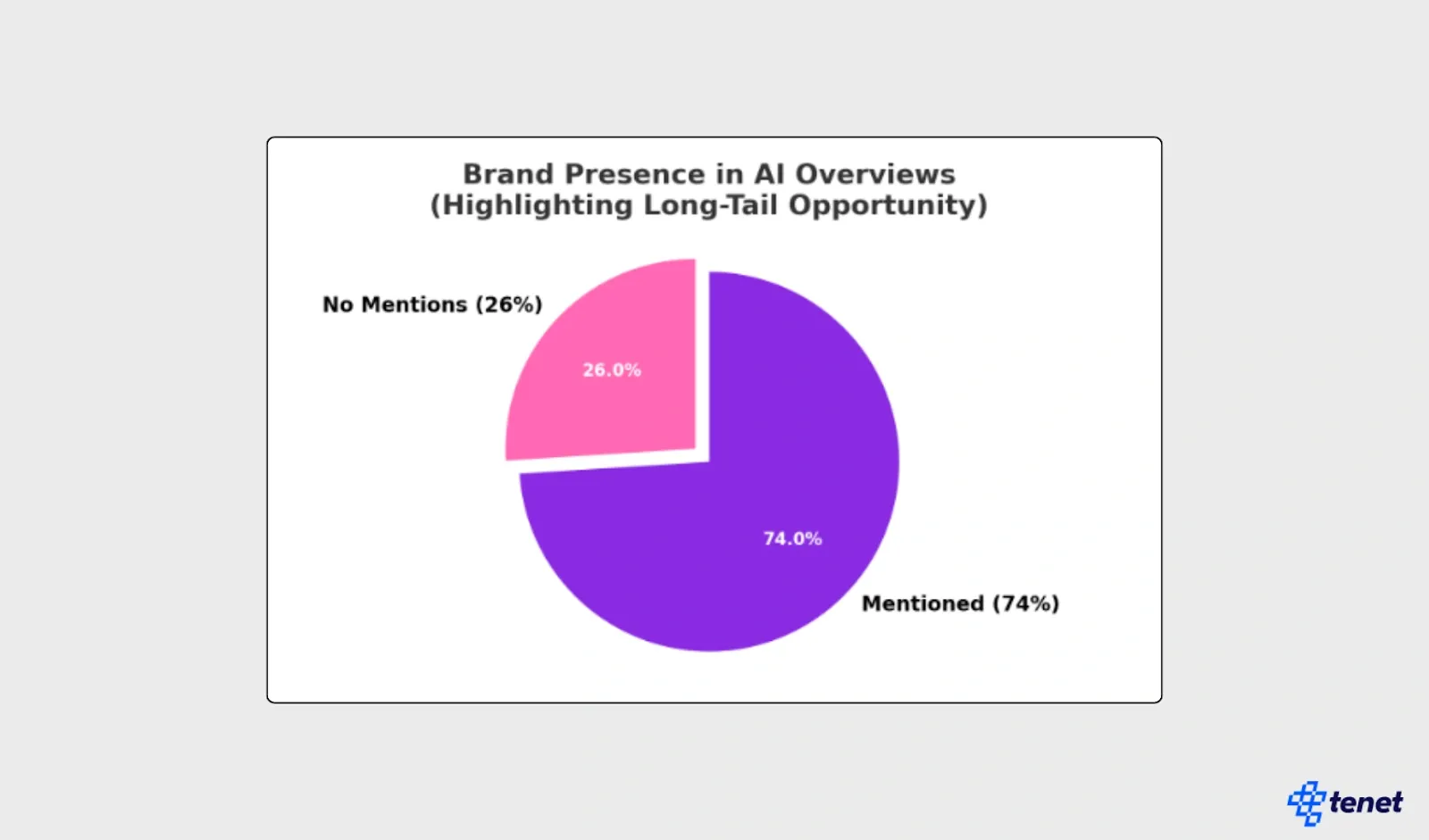
- The top 3 visibility drivers in AI Overviews are brand web mentions, brand anchors, and branded search volume, all off-site signals.
- Paid signals like branded ad spend or traffic show only weak positive correlation with AI Overview citations.
7. Which AI Tools Do SEOs Trust the Most?
Marketers have quickly aligned around a core group of AI tools for SEO tasks:
- ChatGPT leads AI content creation usage, with 44% of marketers naming it their go-to assistant, Gemini comes second at 15%, followed by Claude at 10%.
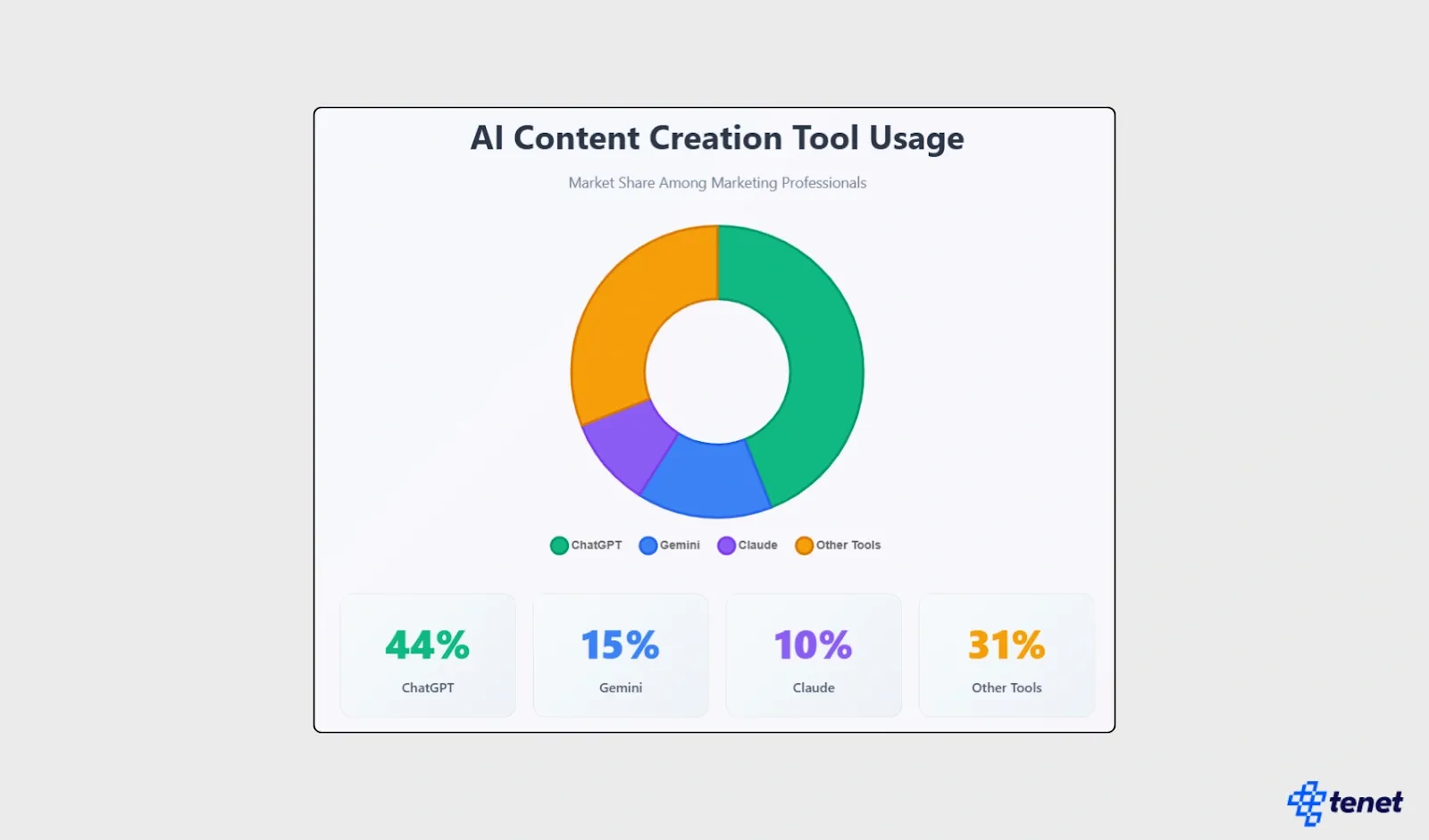
- A total of 94 distinct AI tools were mentioned in usage surveys—indicating both a dominant core and long tail of options.
- Despite the spread, ChatGPT remains the most frequently adopted AI model for content creation.
8. How Businesses Are Using AI to Create SEO Content
AI is now part of the content workflow in almost every marketing team:
- 87% of businesses use AI to help create SEO content, with blog posts being the most common format.
- 74.2% of new webpages contain some form of AI-generated content.
- 42% of businesses use AI specifically for long-form content, such as service pages or pillar blogs.
- 25% of e-commerce businesses rely on AI to write product descriptions at scale.
- AI is also used widely for content updates (67%), blog outlining (73%), and idea brainstorming (76%).
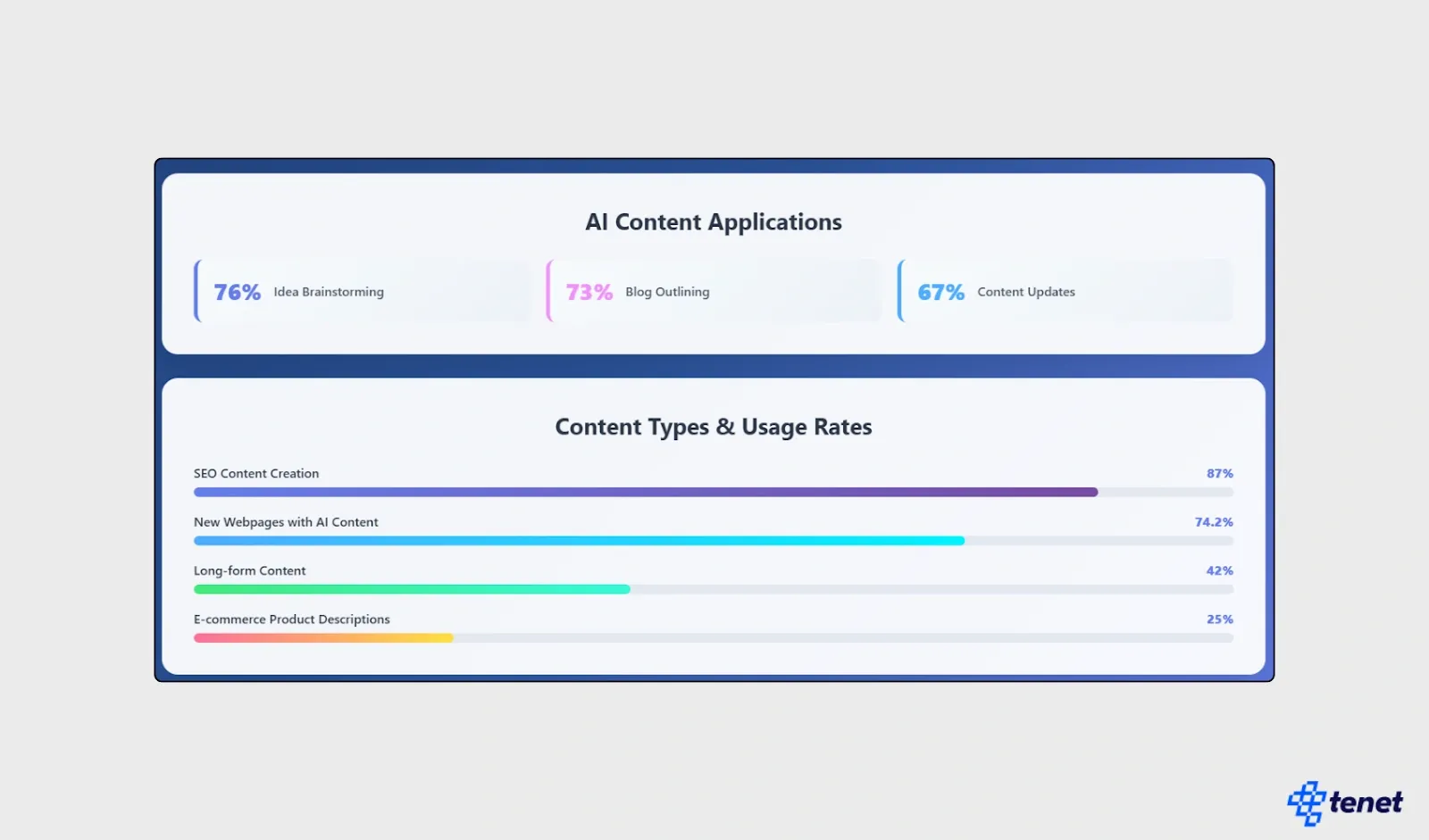
- 93% of marketers review their AI-generated content before publishing to maintain quality and accuracy.
- Only 4% publish unedited AI content, while 80% manually edit content to correct or enrich it.
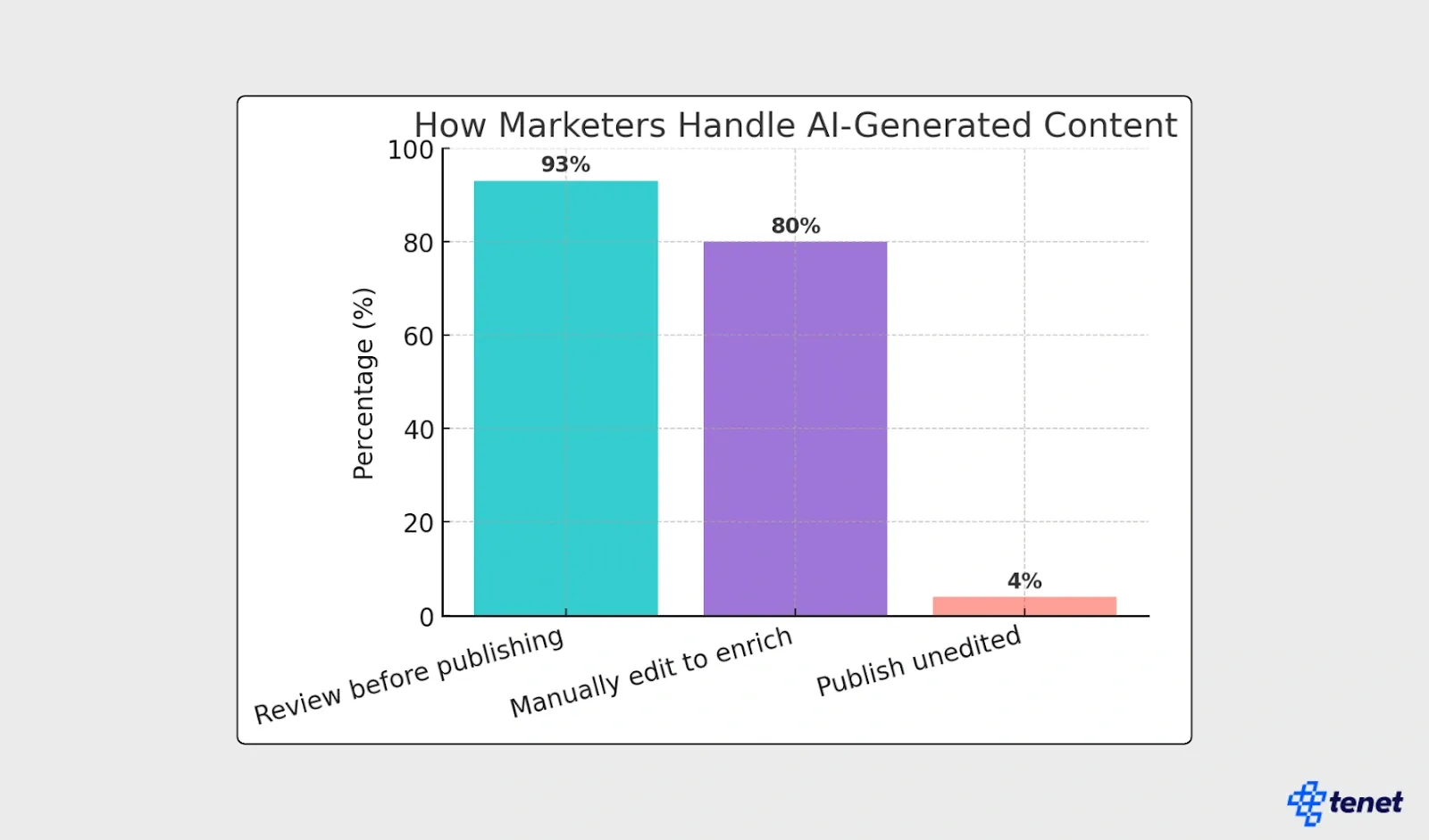
- Wikipedia is a top source across all tools—ChatGPT cites it 16.3% of the time, Perplexity 12.5%, and AI Overviews 8.4%.
9. How AI Is Boosting Content Output and Frequency
Teams using AI are publishing more content, faster:
- Companies using AI publish 42% more content per month than those who don’t.
- The median monthly publishing volume with AI is 17 articles, compared to 12 for non-AI workflows.
- AI also helps reduce bottlenecks in content planning, allowing faster scaling across multiple formats.
10. Top SEO Tasks Being Automated with AI
AI now plays a role in nearly every SEO task, not just content creation:
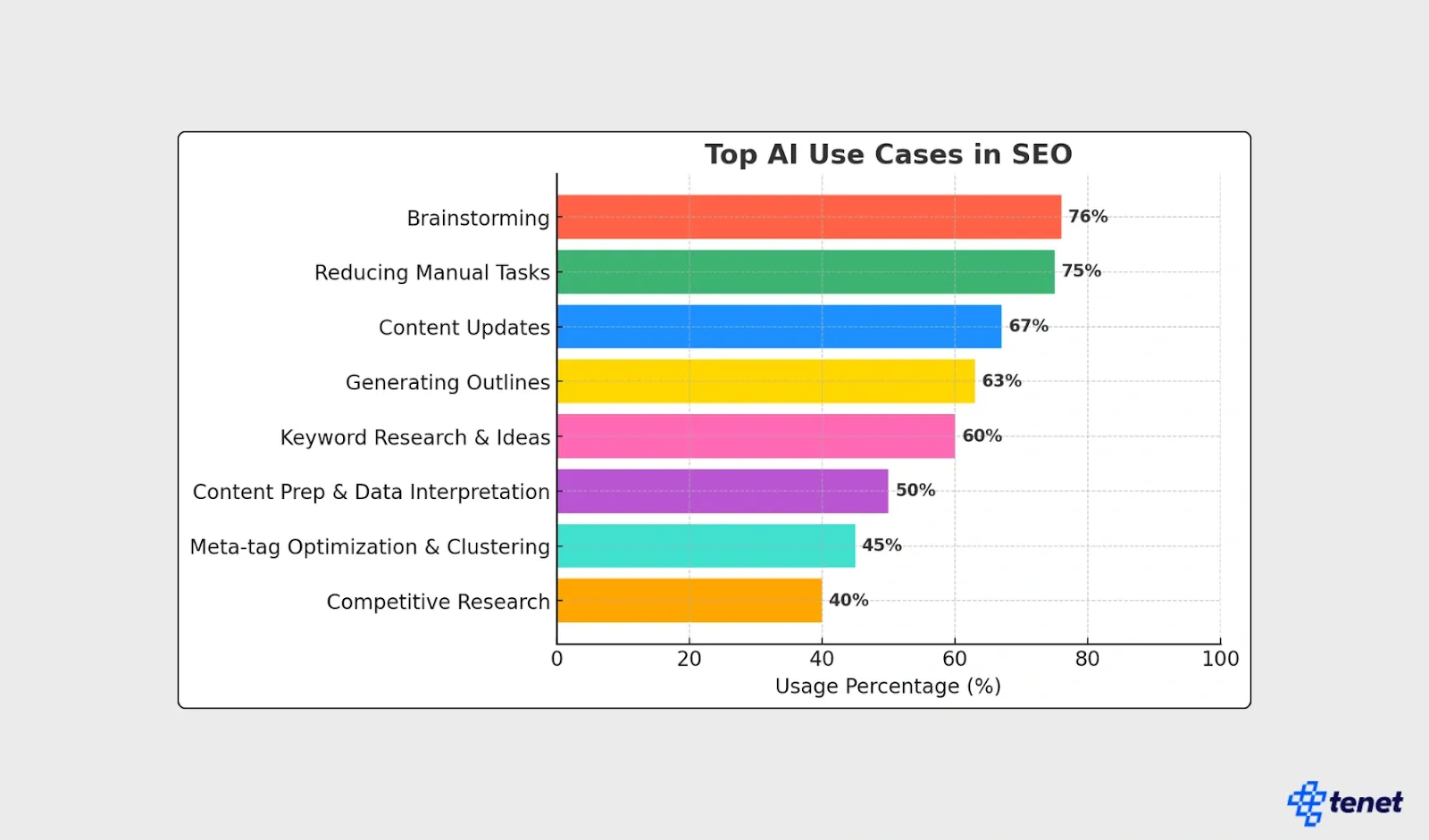
- 63% of businesses use AI to generate content outlines, helping teams plan efficiently.
- 60% use it for keyword research and idea generation.
- Meta-tag optimization and topic clustering are also common uses for automation.
- AI tools are helping SEOs save up to 50% of the time spent on data interpretation and content prep.
- 75% of businesses use AI to reduce repetitive manual tasks, making SEO more scalable.
- Brainstorming (76%), content updates (67%), and competitive research are among the top AI-accelerated tasks.
11. How Marketers Feel About Using AI in SEO
Marketers are embracing AI, but not without a critical eye:
- 86% of SEO experts say they’ve already integrated AI tools into their workflows.
- 61% of marketers using AI for SEO say it is either “effective” or “very effective.”
- 30% of respondents believe that AI poses a brand safety or misinformation risk, particularly for published content.
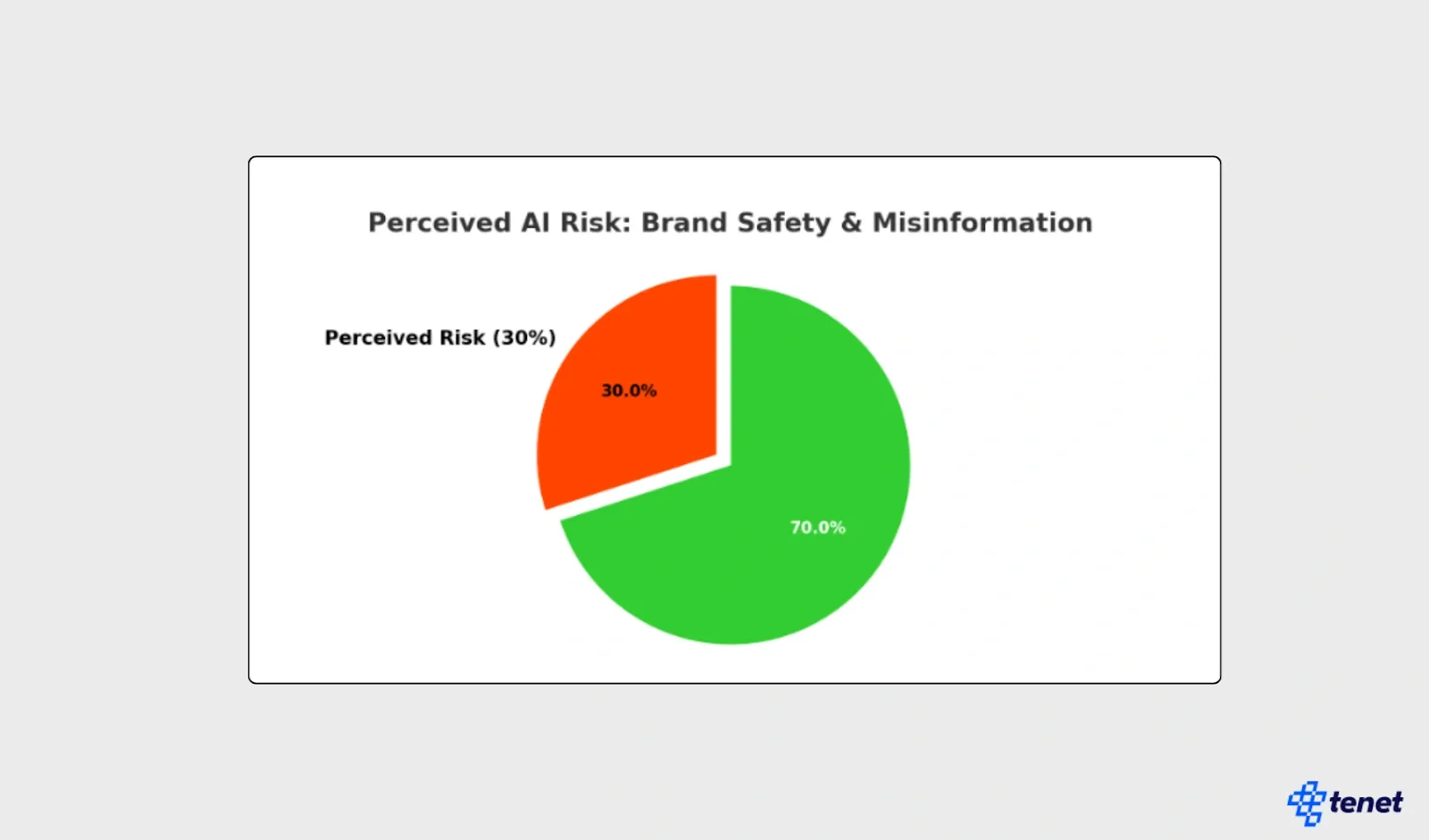
- 83% of marketers at companies with over 200 employees report improved SEO performance after incorporating AI.
- 75% of marketers believe AI-enabled search engines will have a positive impact on their blogs.
- 82% of SEO professionals plan to invest more in AI-powered SEO tools in the near future.
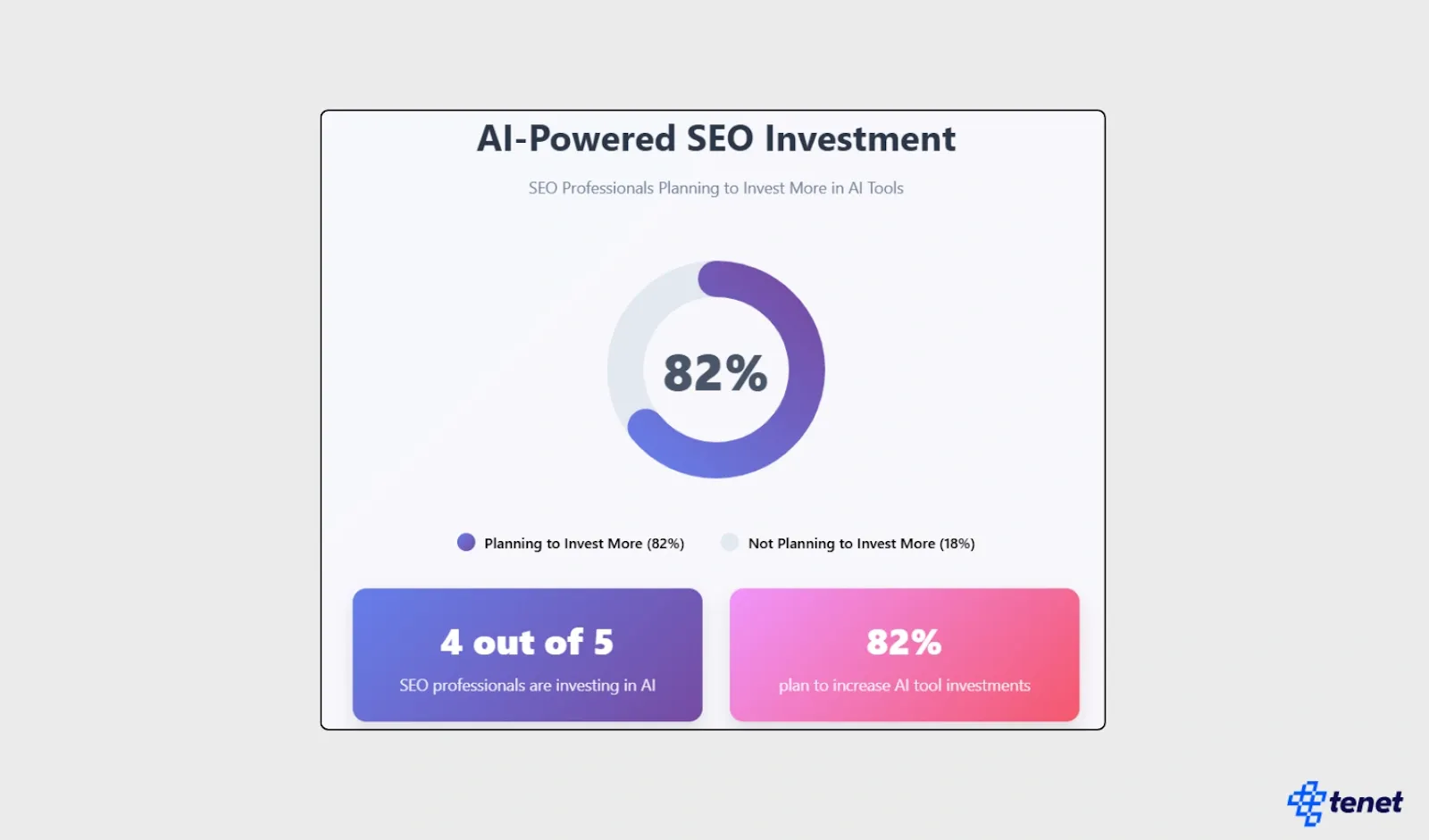
- 59% of SEO pros say AI has somewhat influenced their strategic planning, while 21% say it’s led to major changes.
- When asked to rate their confidence in using AI for SEO on a scale of 1–10, SEO experts gave an average score of 7.
- 64.48% of SEO professionals prioritize accuracy as the most important trait in AI tools.
- Only 4.09% of SEO specialists believe that AI has no benefit at all in enhancing SEO strategy.
- Still, 65.14% of professionals cite content quality and authenticity as their top concerns when using generative AI.
12. What Results Are Marketers Seeing from AI SEO
AI is delivering measurable business impact for marketers and SEOs:
- 68% of marketers confirm that AI has helped them achieve a higher return on investment (ROI).
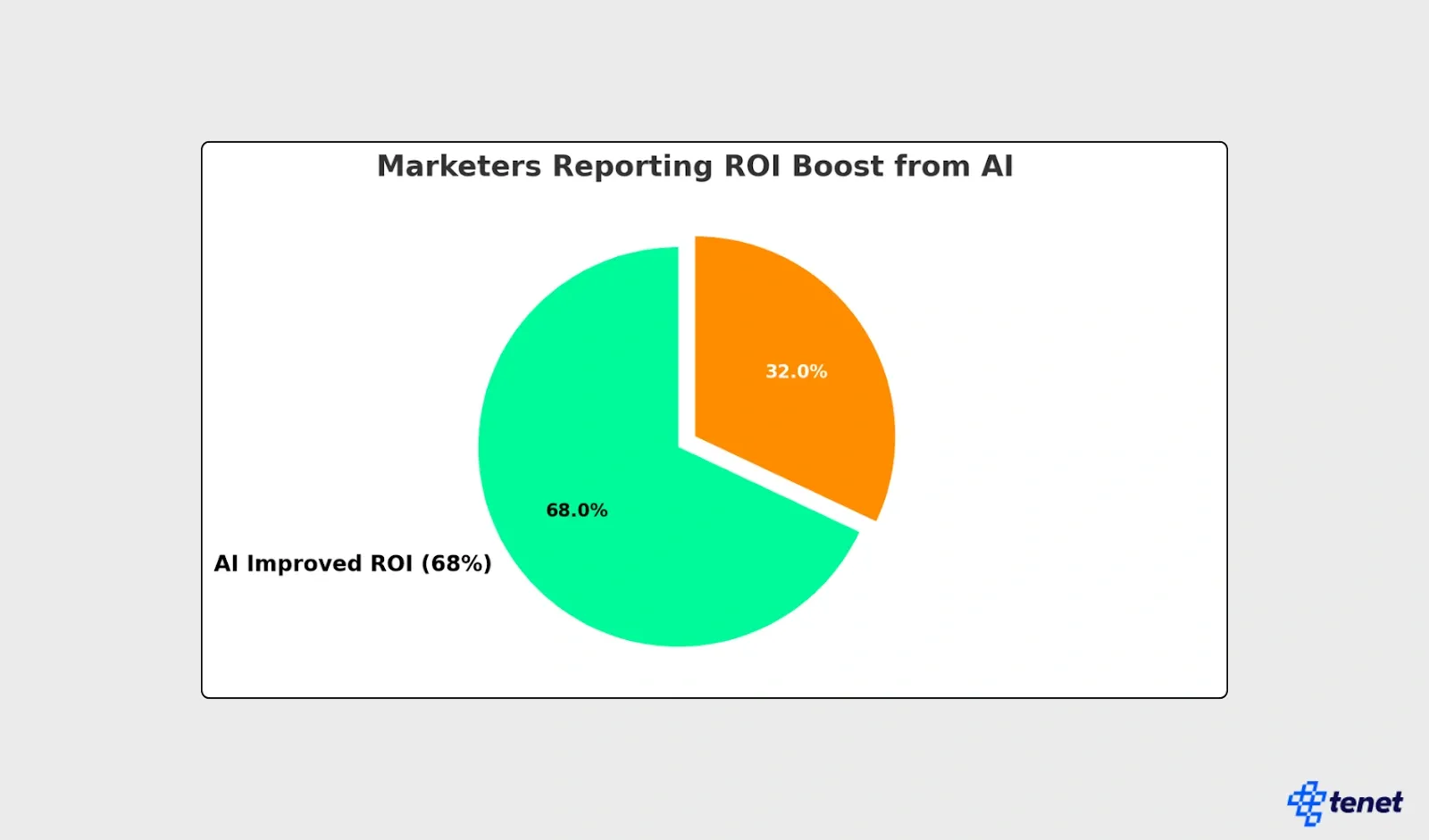
- 40% of marketers report a 6–10% increase in revenue after implementing AI in their SEO workflows.
- 52% of marketers said that using AI tools improved efficiency and execution speed in their SEO campaigns.
- Headlines written with the help of AI see up to a 59% increase in click-through rates (CTR).
- 50% of marketers say that having consumers use AI search tools has actually boosted their website traffic indirectly.
- AI tools are helping SEO teams not just publish faster, but rank better and convert more consistently across verticals.
13. What Kinds of Sources Do AI Tools Prefer to Cite?
Each AI assistant leans toward different types of sources when giving answers:
- Wikipedia is the top-cited source across all tools, with ChatGPT citing it in 16.3% of responses, Perplexity 12.5%, and AI Overviews 8.4%.
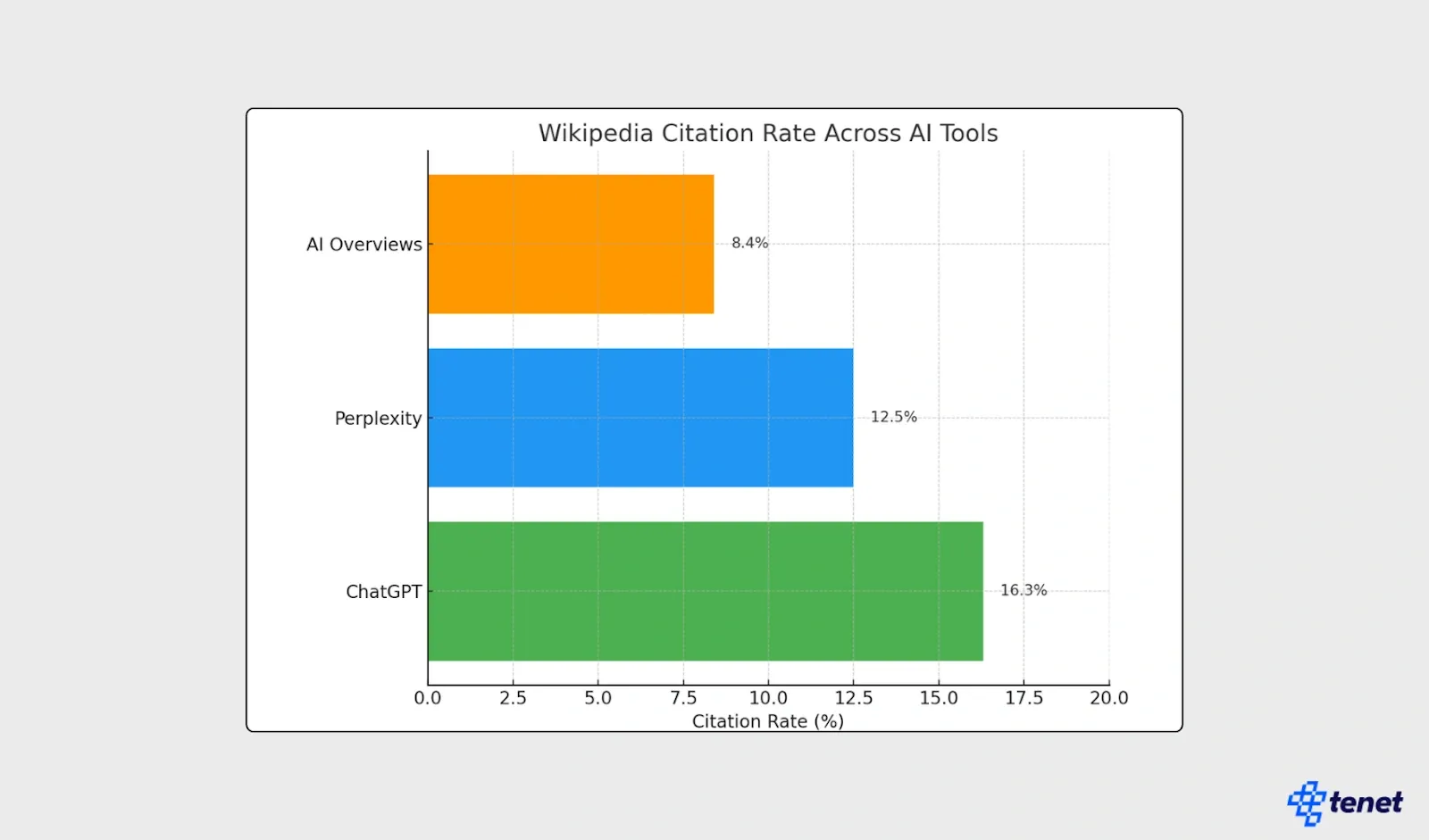
- YouTube is widely cited in Perplexity (16.1%) and AI Overviews (9.5%), but it’s rarely used in ChatGPT.
- Reddit and Quora are highly favored by AI Overviews (7.4% and 3.6% respectively) but are absent in the top 10 sources of ChatGPT and Perplexity.
- News sites like Reuters, AP (Apple News), and AS.com appear prominently in ChatGPT citations (4% to 2.6%), showing its news bias.
- Health sites like Mayo Clinic and Cleveland Clinic appear more often in AI Overviews, while Perplexity favors regional health sites like Tuasaude and Alodokter.
14. How the SEO Industry Is Adapting to AI
The industry is responding with new workflows, attitudes, and strategies:
- 61% of marketers now consider AI to be a core part of their SEO strategy.
- 67% of SEOs say the top benefit of AI is automating repetitive, low-value tasks, freeing up time for higher-impact work.
- 18.7% of SEO experts believe that AI and machine learning will bring significant industry-wide changes to SEO in the next few years.
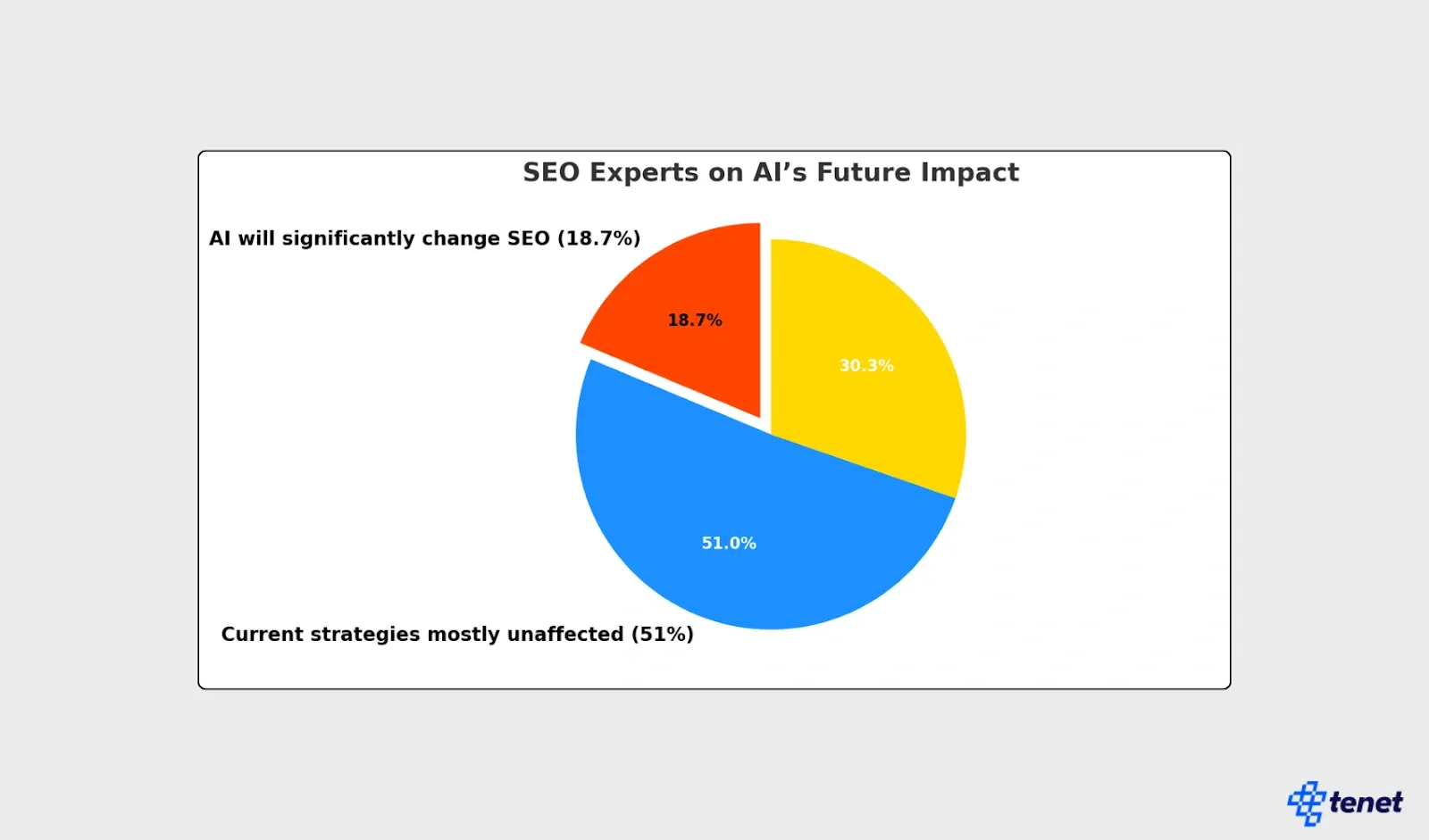
- Still, 51% of SEO specialists believe that their current strategies will remain mostly unaffected by generative AI, at least for now.
15. Where Is AI SEO Headed Next?
Marketers and analysts are preparing for an AI-shaped future:
- Gartner predicts that search engine volume will drop by 25% by 2026 due to increased GenAI usage.
- In 2025, 19% of marketers plan to add AI-enhanced search tactics to their SEO strategies.
- More than 80% of retail and consumer brands plan to use AI automation by 2025.
- Generative AI platforms now have 21 active AI bots crawling the web, double the number from August 2023.
- ChatGPT saw 25% growth in MAUs from May 2023 to May 2024 and continues to lead in adoption.
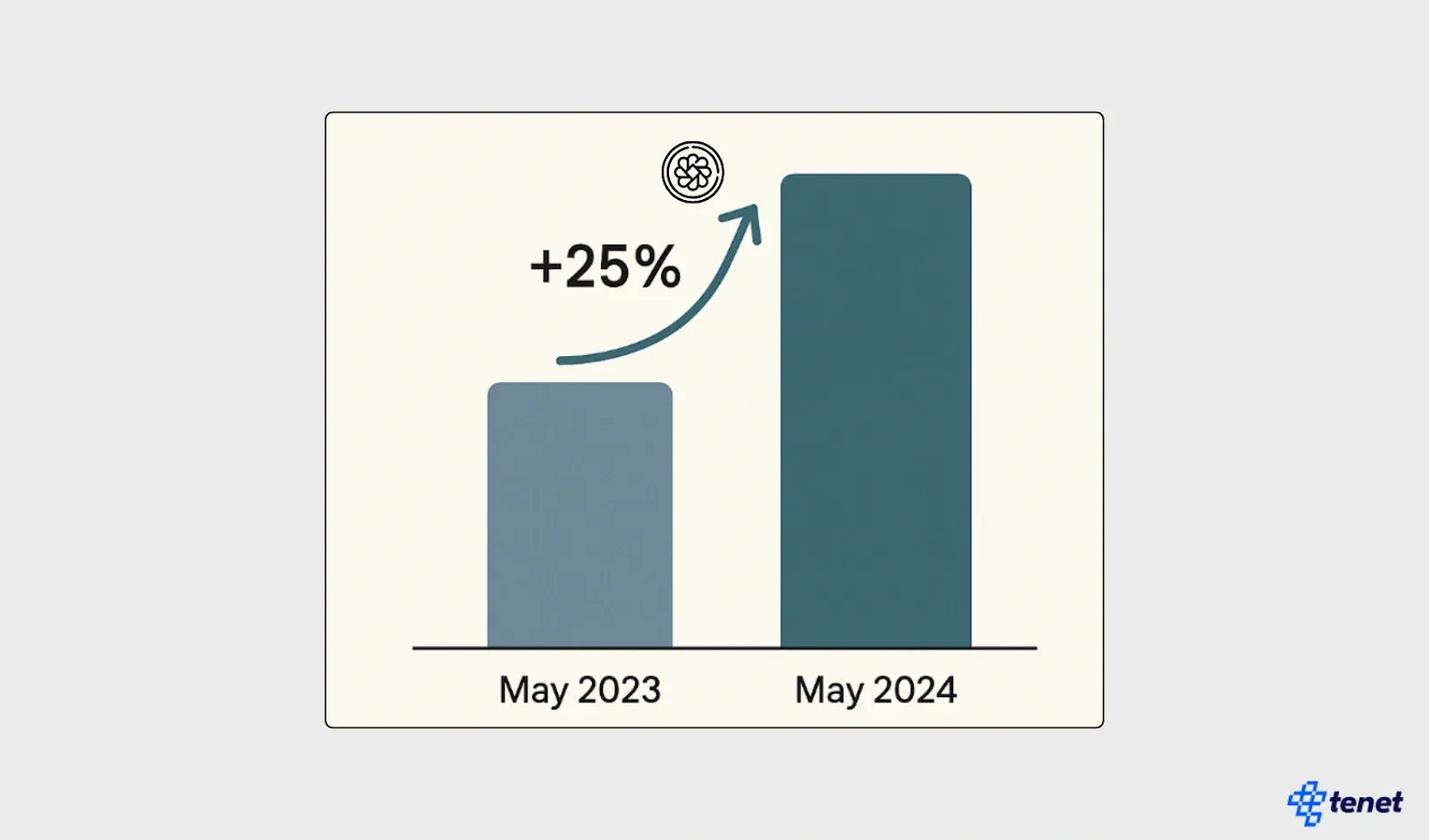
Despite AI’s rise, 99% of marketers still rely on traditional search engines, often combining AI with Google in their workflows.
- The percentage of search engine users who also use GenAI platforms remains in the low double digits, showing room for growth.
Final Takeaway
AI is no longer optional in SEO, it is now deeply connected to how SEO works. From Google’s AI Overviews to tools like ChatGPT, Perplexity and Gemini, it’s changing how people search, what they see, and what they click.
Your visibility in AI Overviews tomorrow depends on the authority, structure, and usefulness of your content today.
Traditional search still drives most traffic, but AI is catching up fast. If you work in SEO or content, you need to adapt. Use AI to speed up your workflow—whether it’s writing, research, or updates—but always check for accuracy and clarity.
The best results come when you combine AI efficiency with human judgment. Moving forward, success in SEO will depend on how well you work with AI, not against it.
AI SEO Statistics Data Sources
- blog.google
- ahrefs.com
- seranking.com
- growth-memo.com
- solutions.trustradius.com
- momenticmarketing.com
- ziptie.dev
- webfx.com
- datos.live
- sparktoro.com
- searchenginejournal.com
- thinkwithgoogle.com
- semrush.com
- gartner.com
- seoclarity.net
- blog.hubspot.com
- statista.com
- flyingcatmarketing.com
- offers.hubspot.com
- seo.ai
- analyticsinsight.net
- bruceclay.com
- statista.com
- aira.net
Want your website to rank in AI search engines? Get a free LLM SEO proposal plan.
Want your website to rank in AI search engines? Get a free LLM SEO proposal plan.

Got an idea on your mind?
We’d love to hear about your brand, your visions, current challenges, even if you’re not sure what your next step is.
Let’s talk





